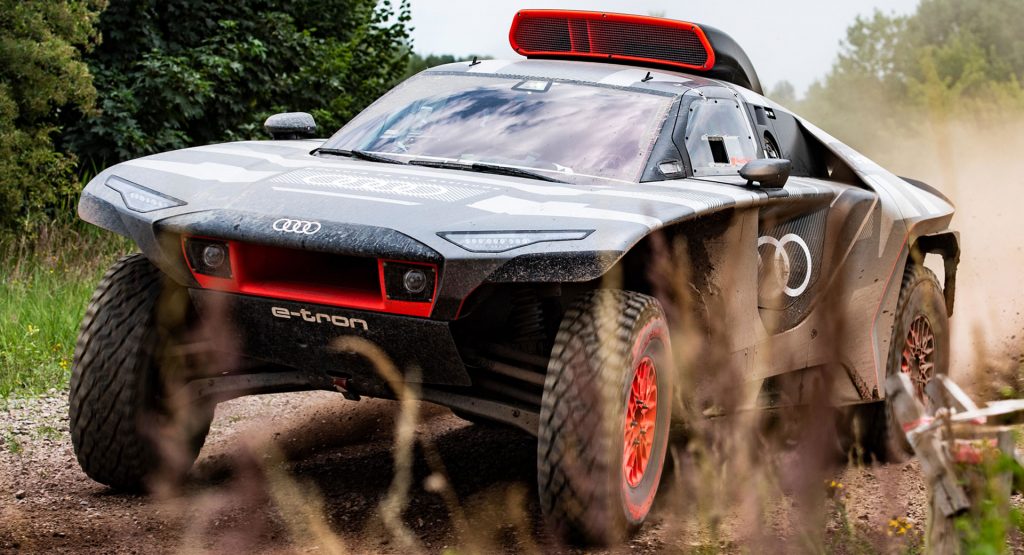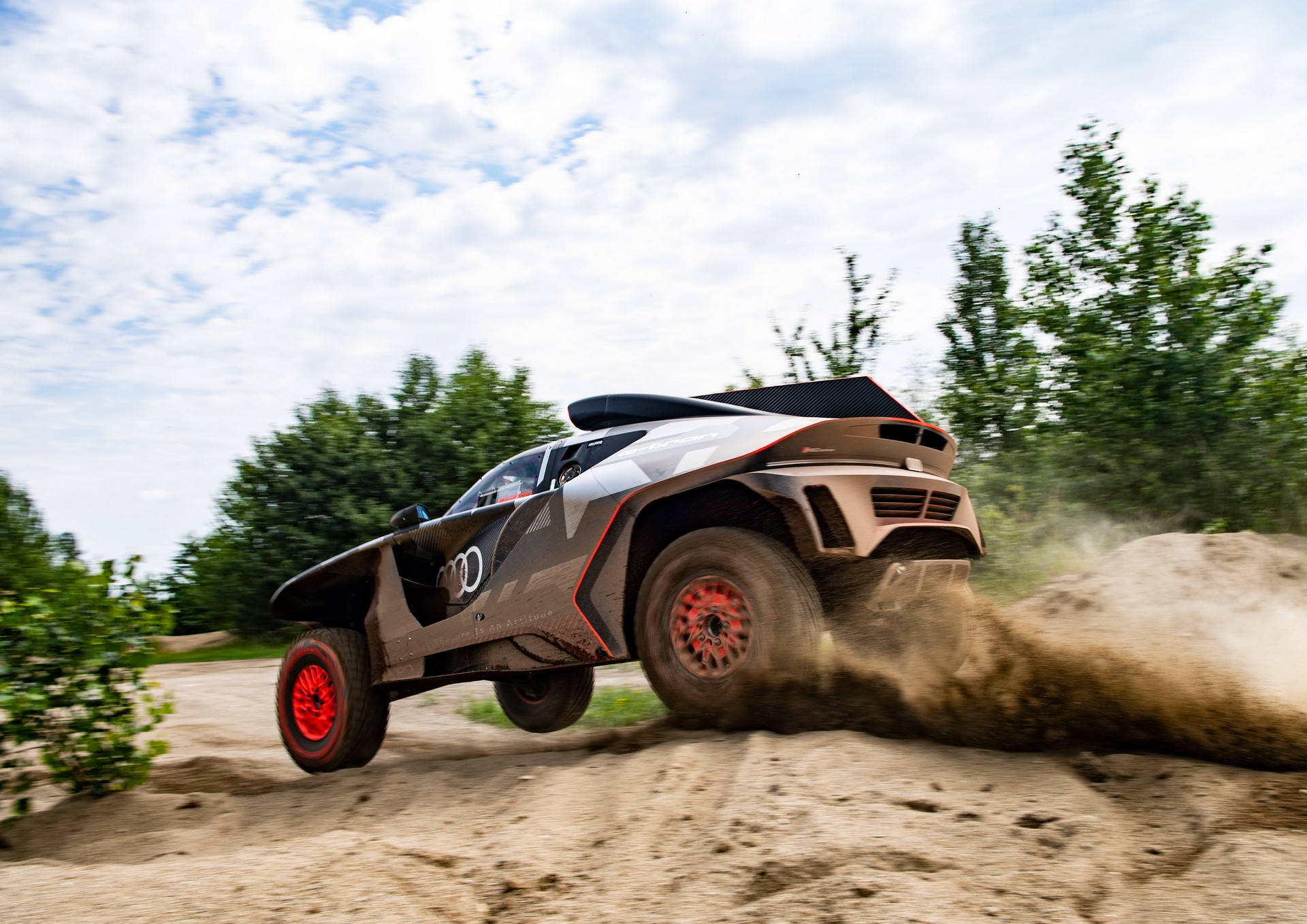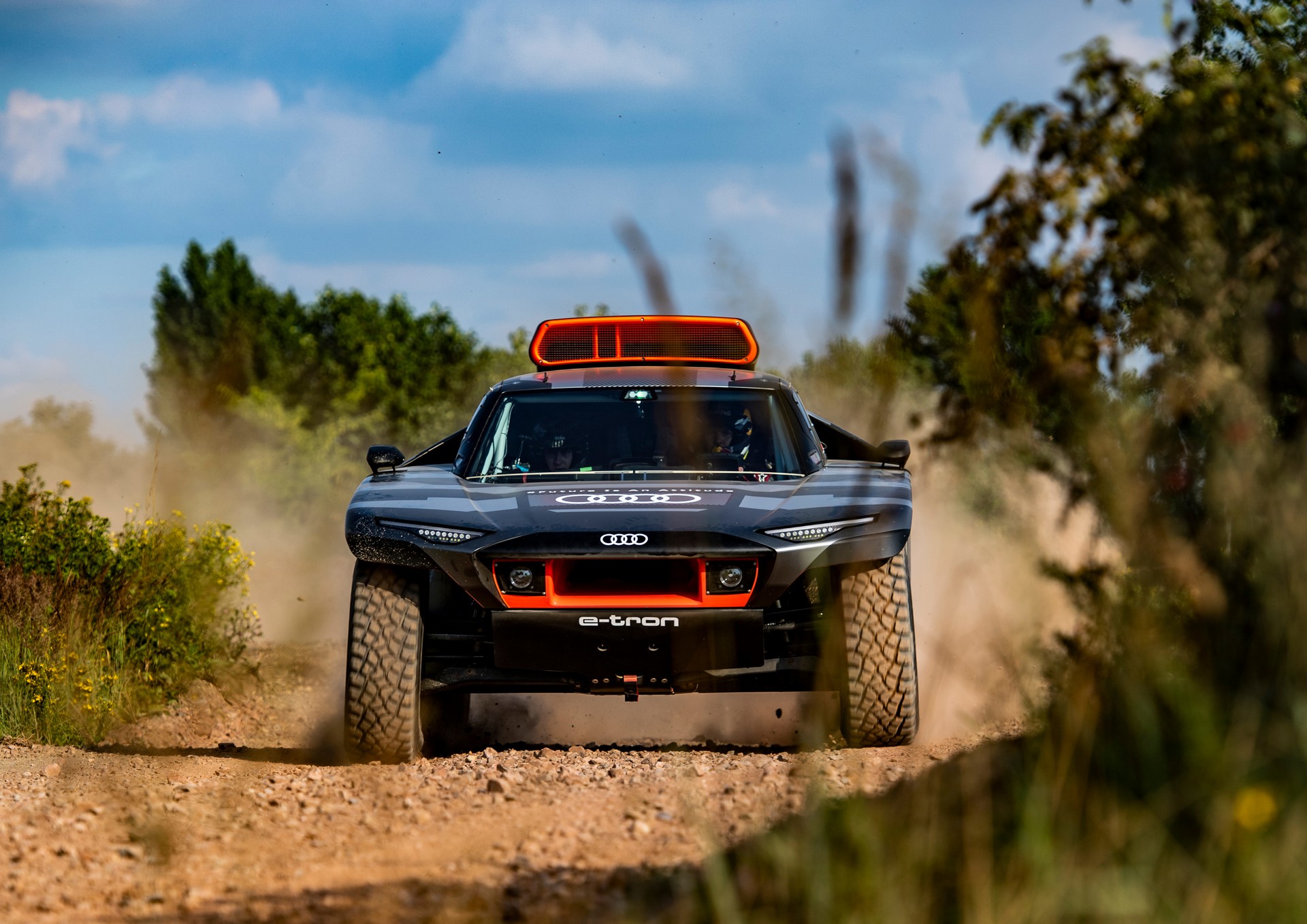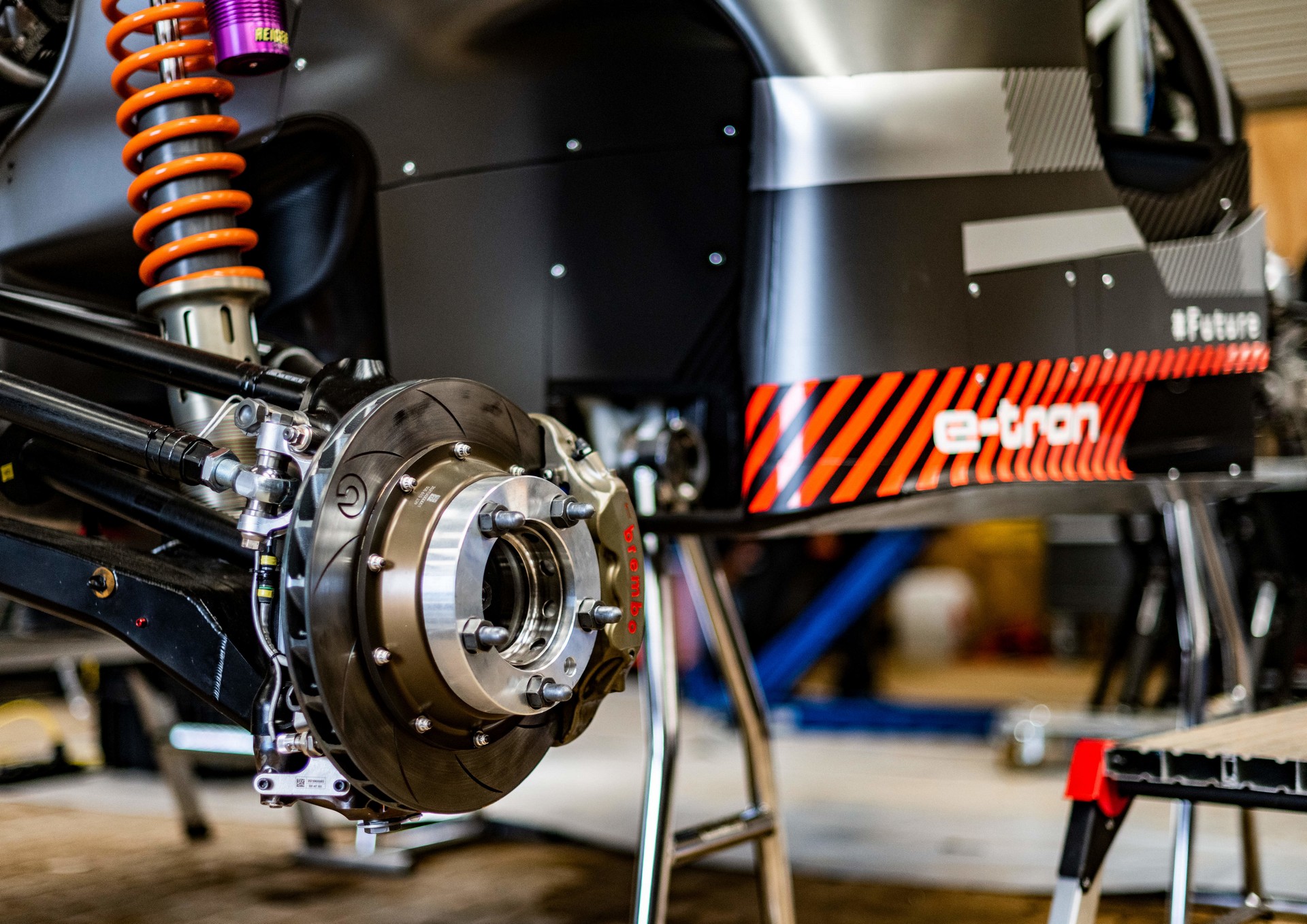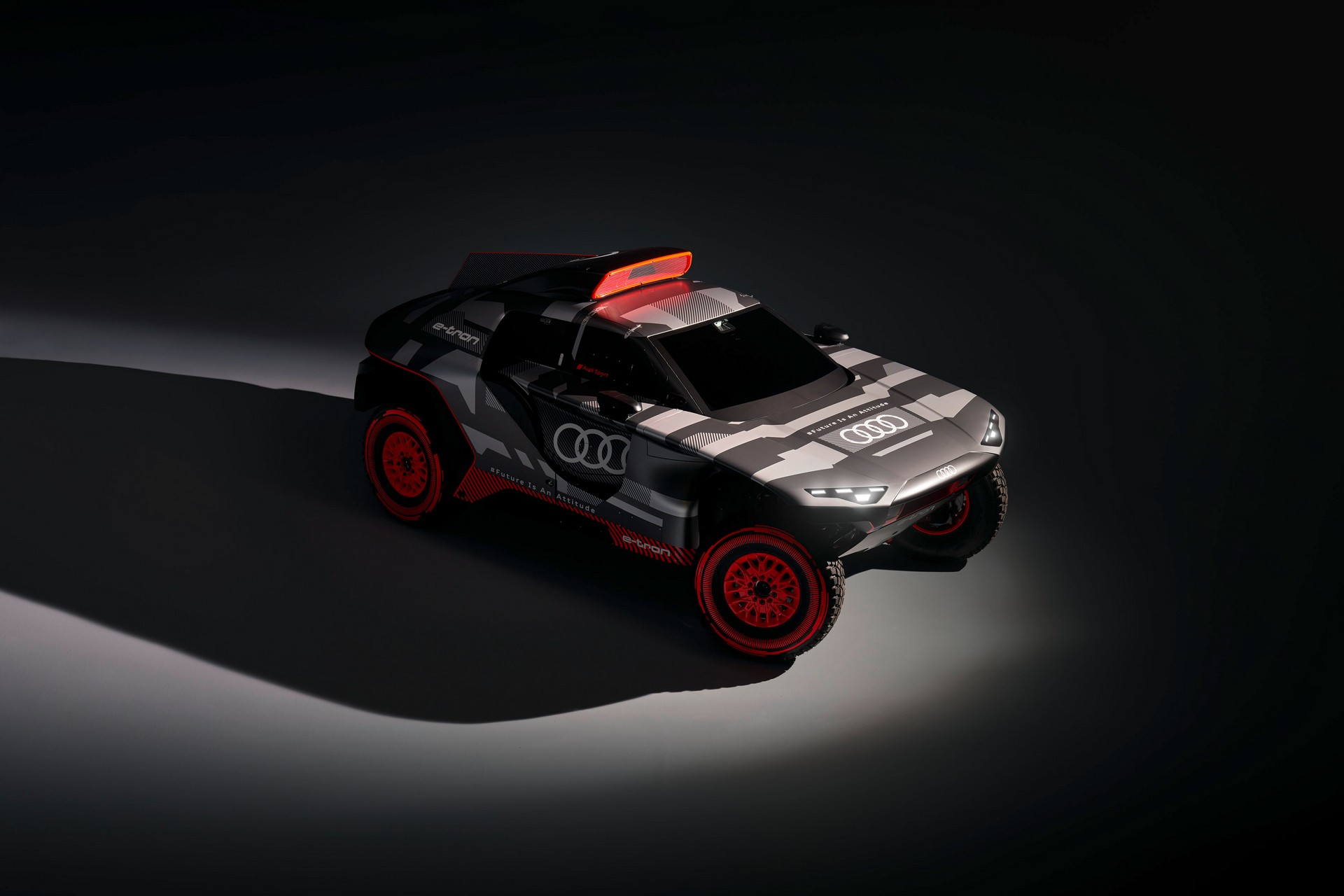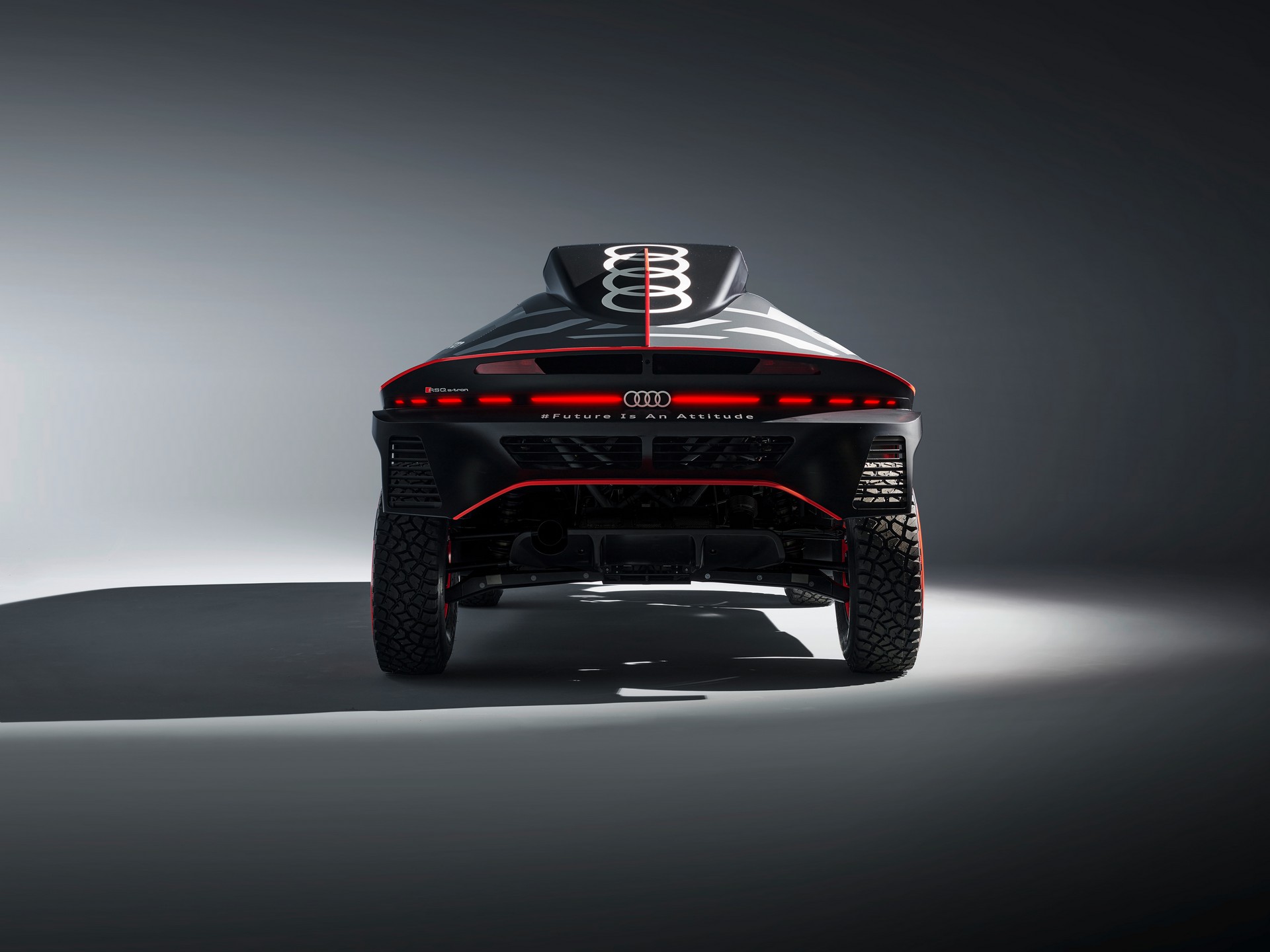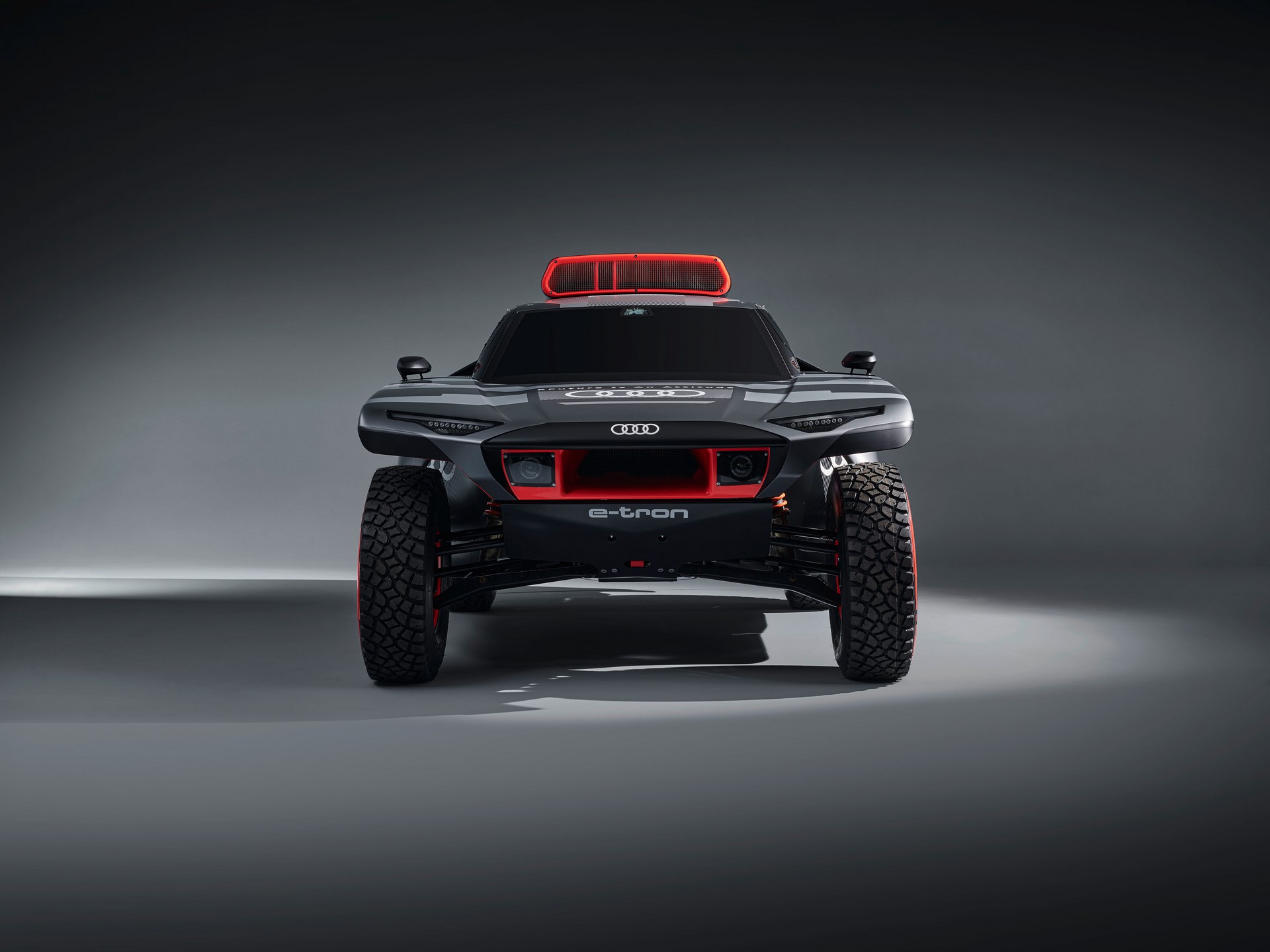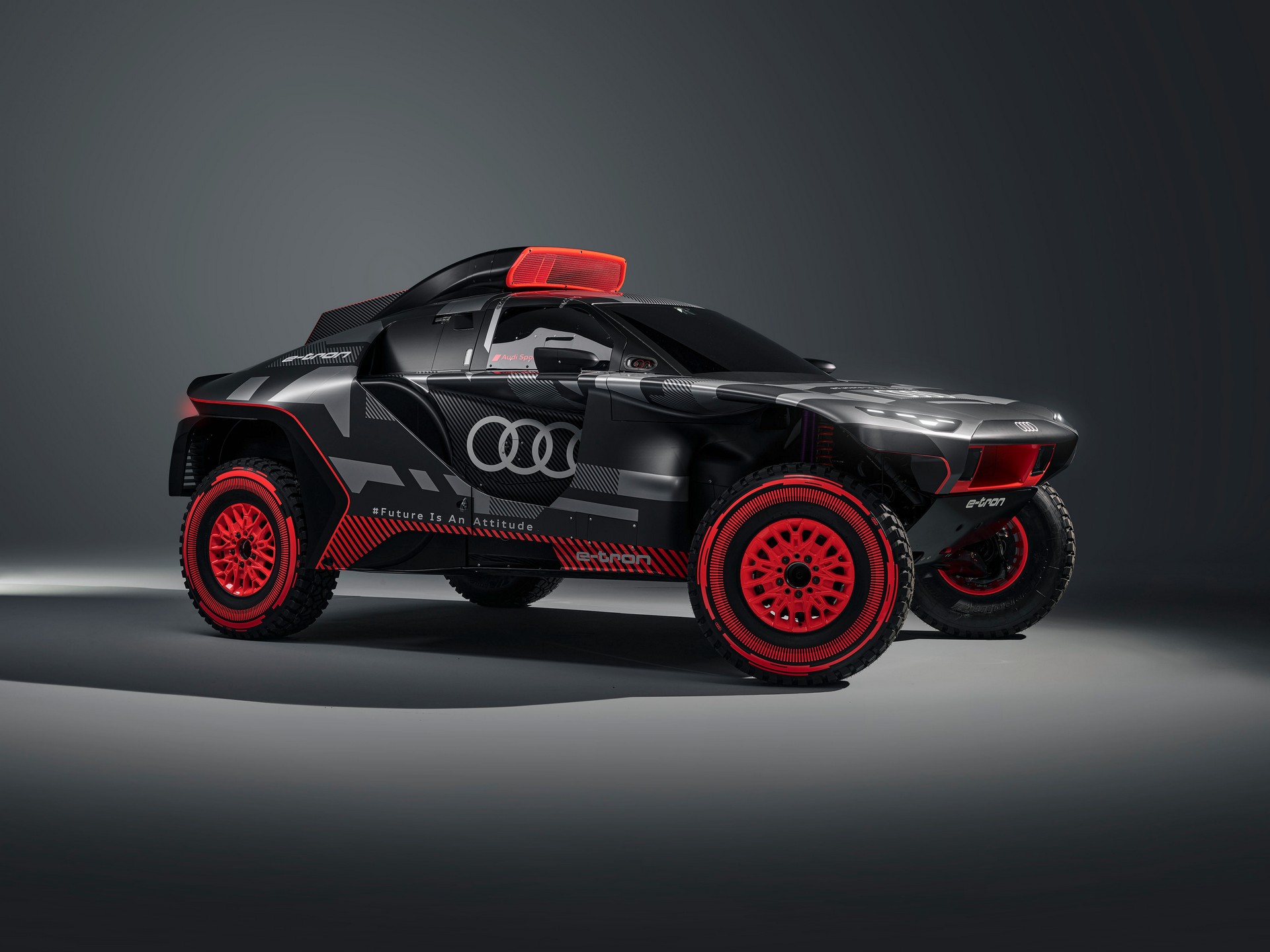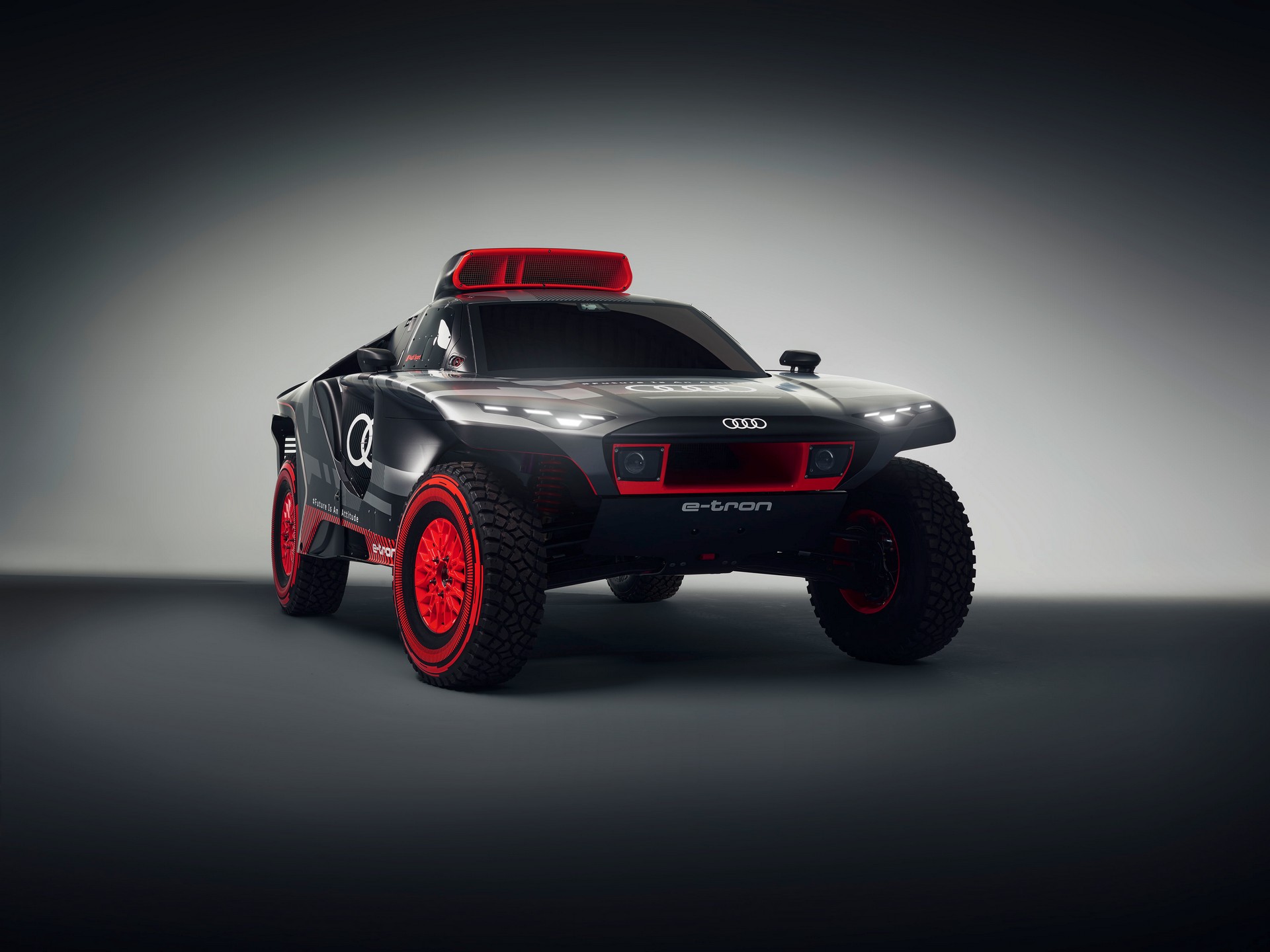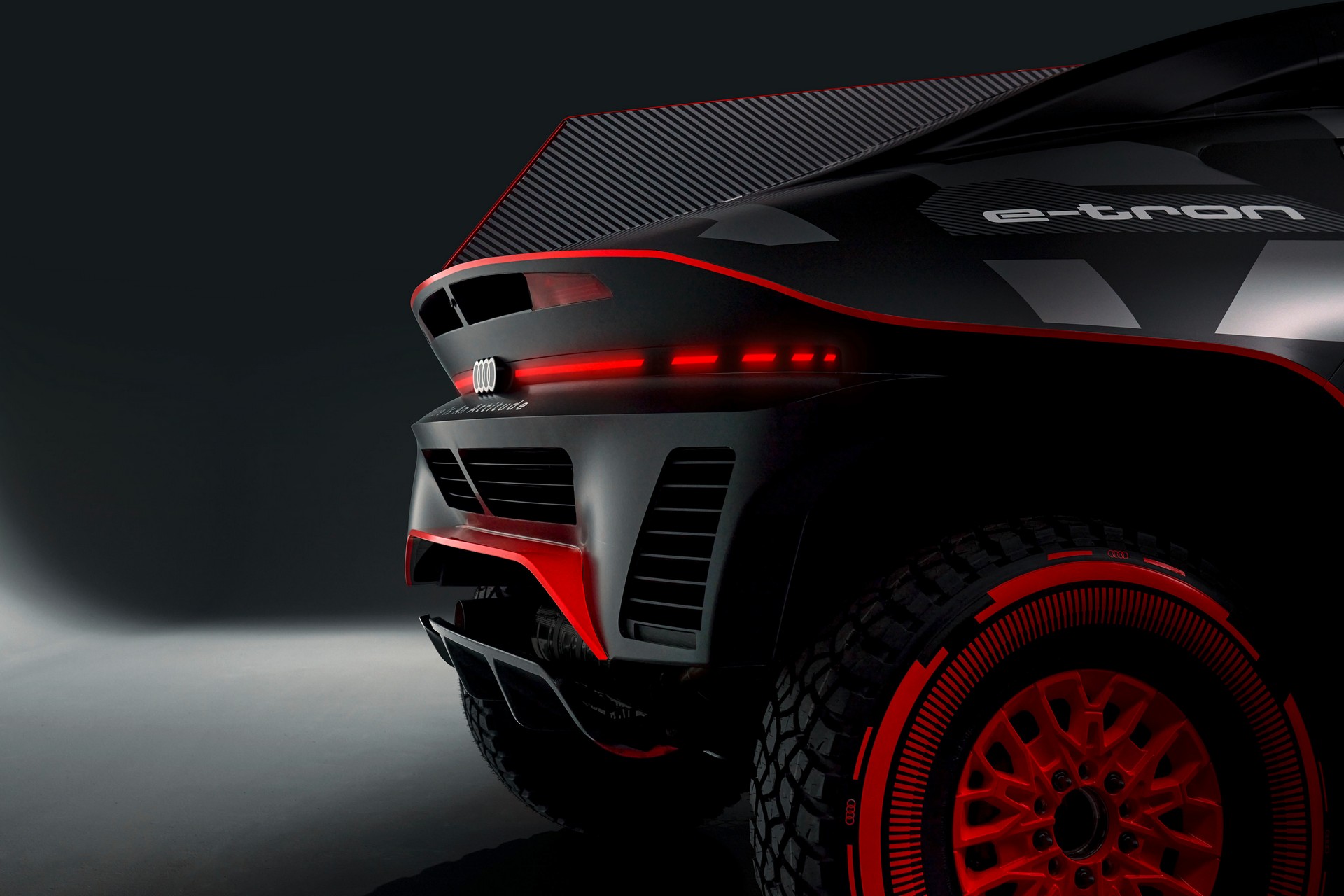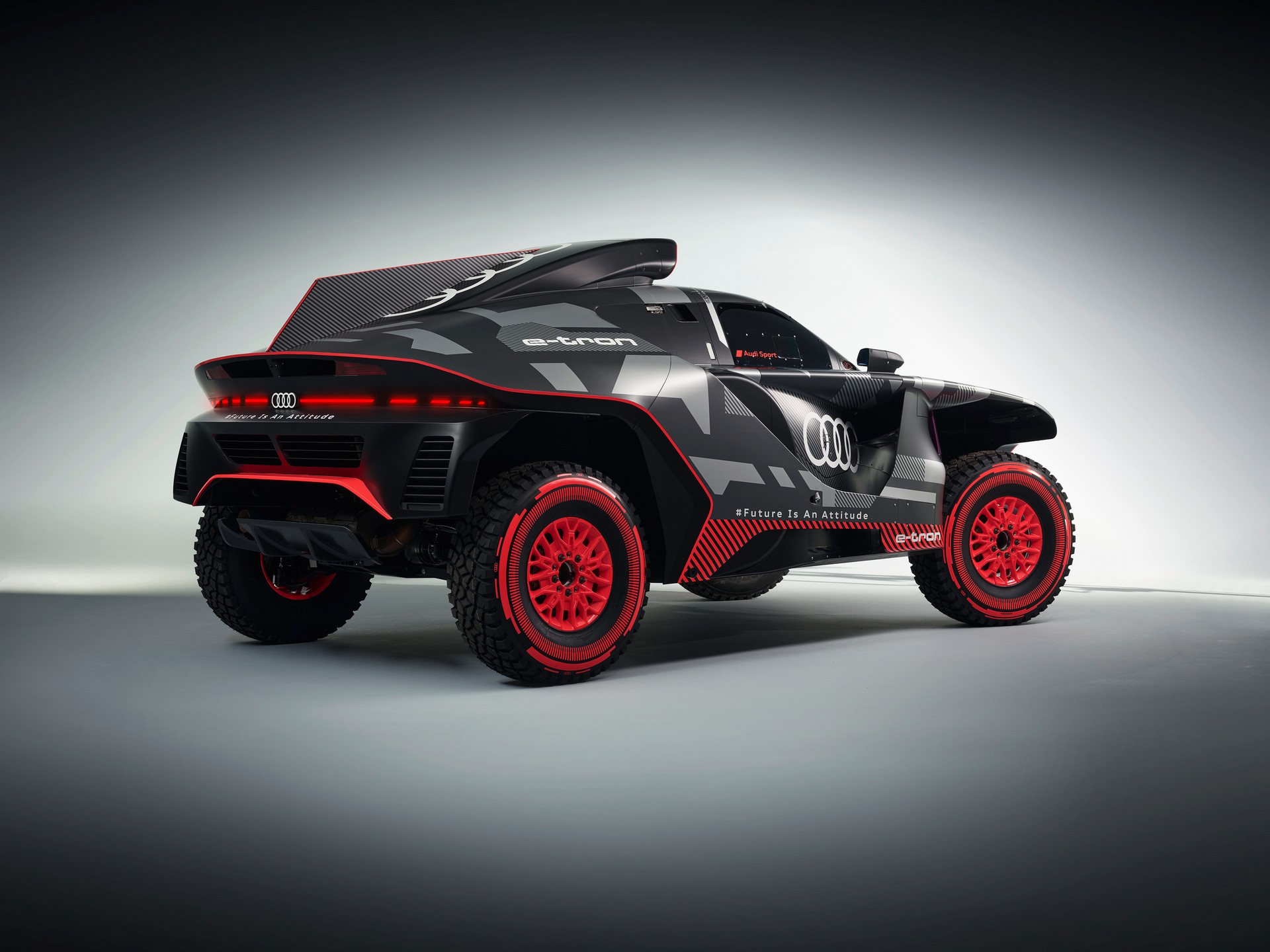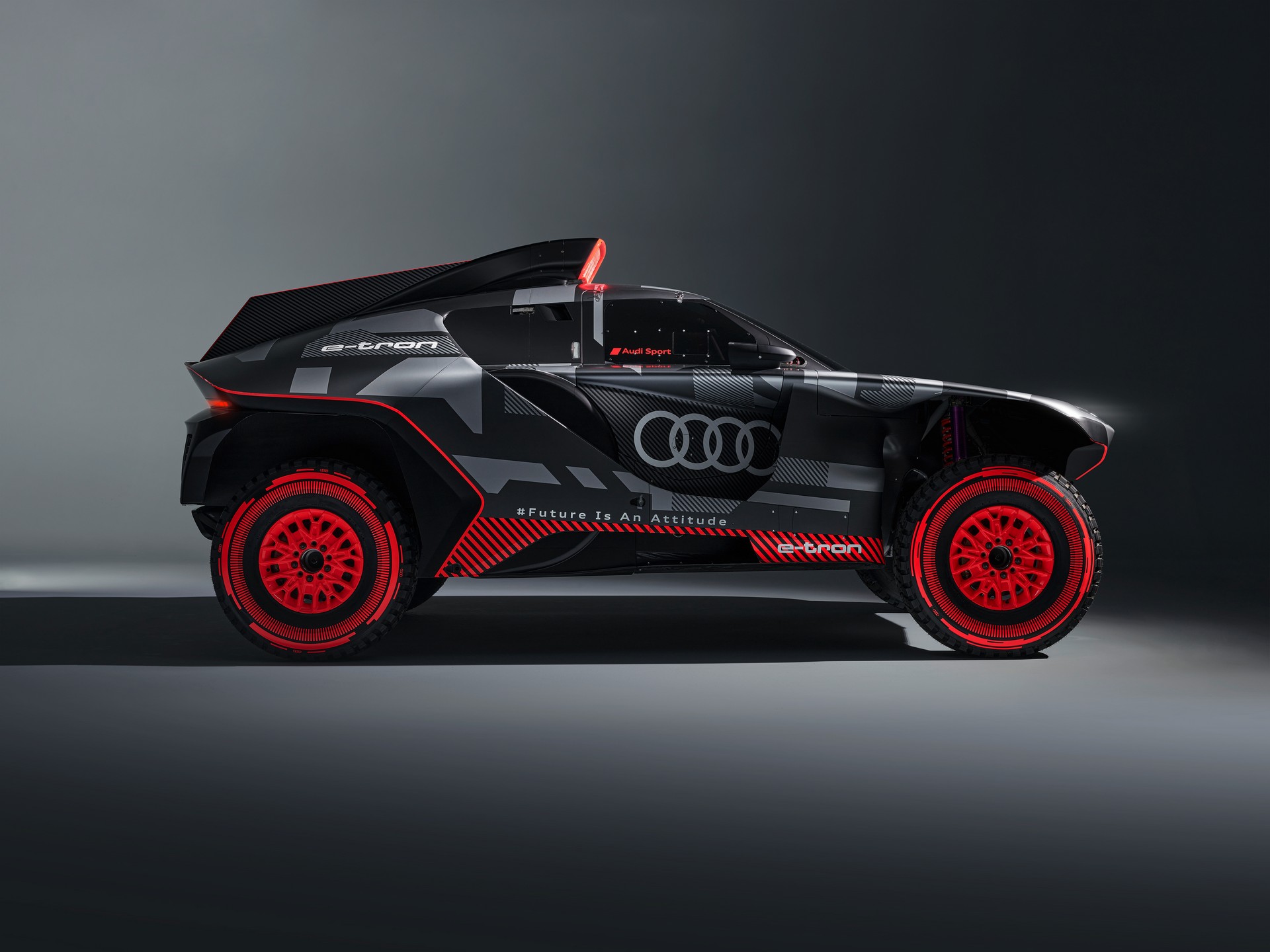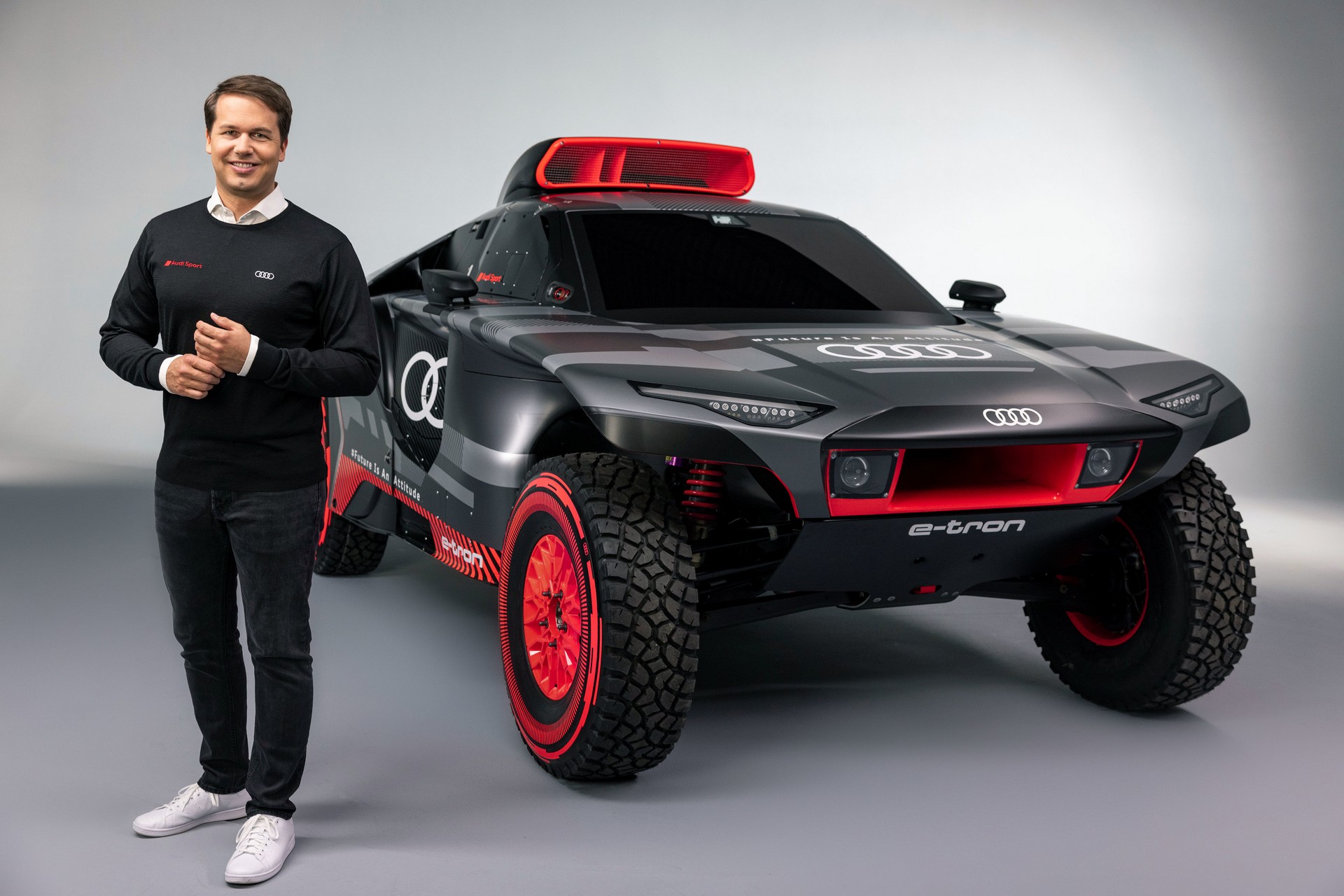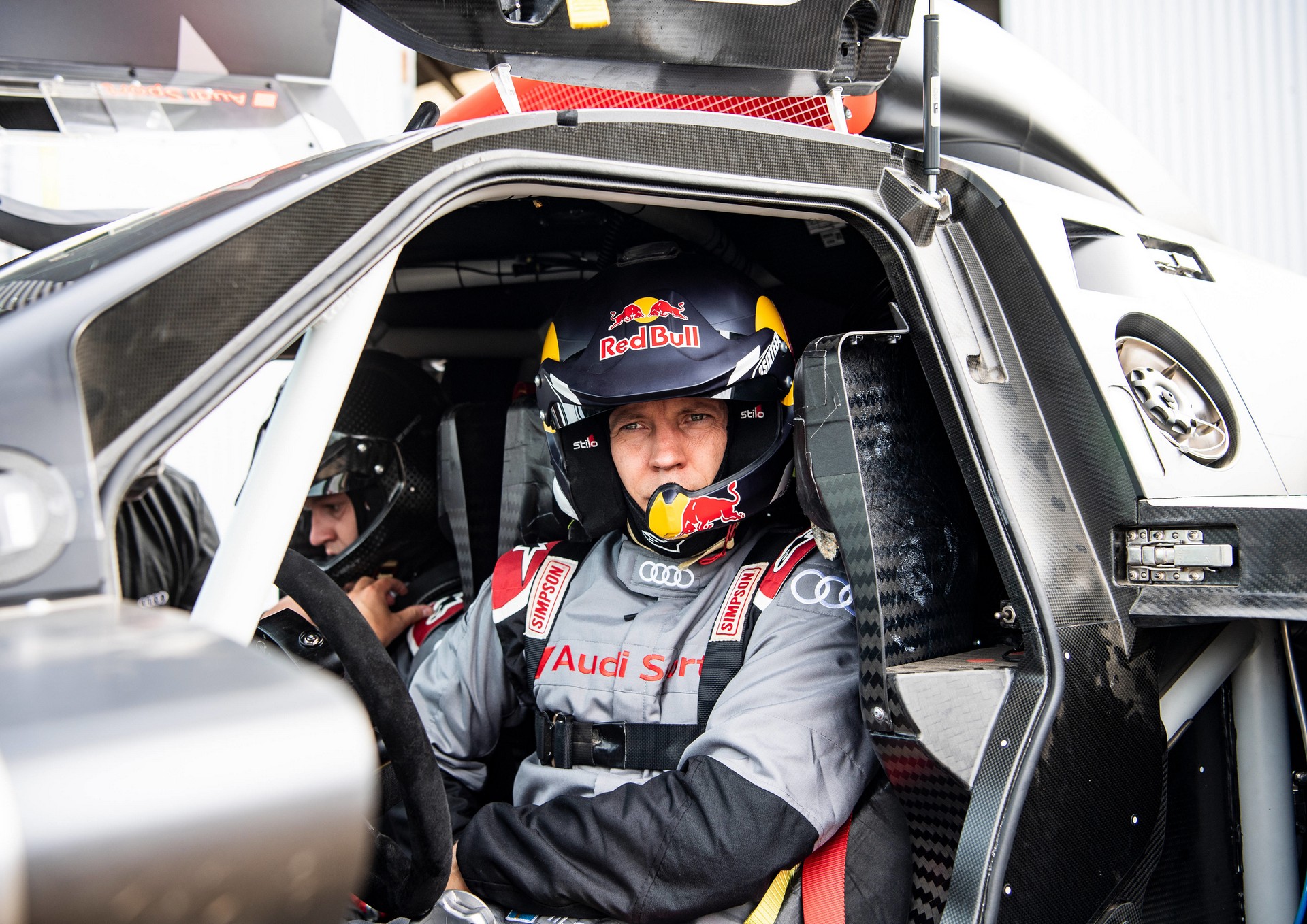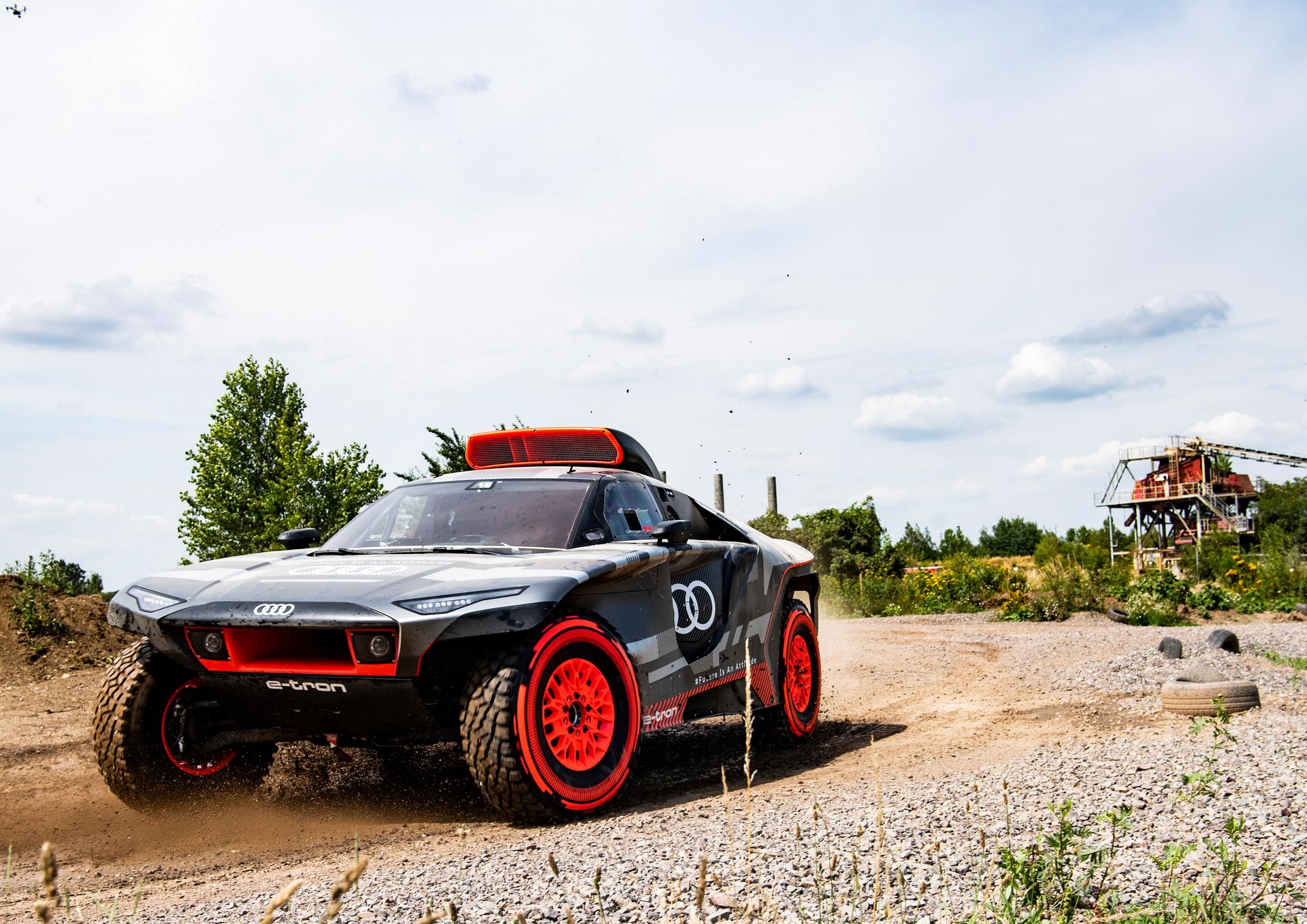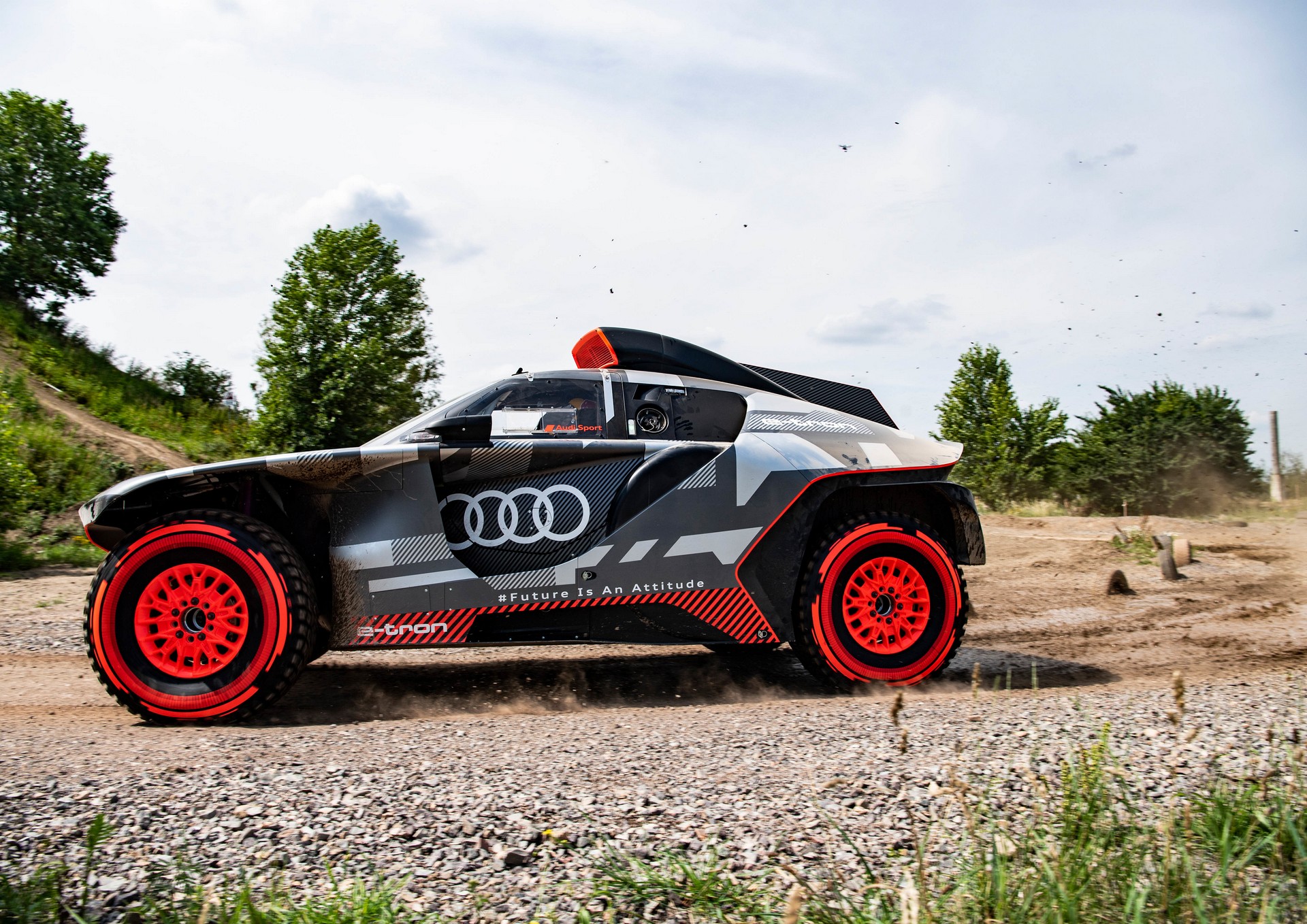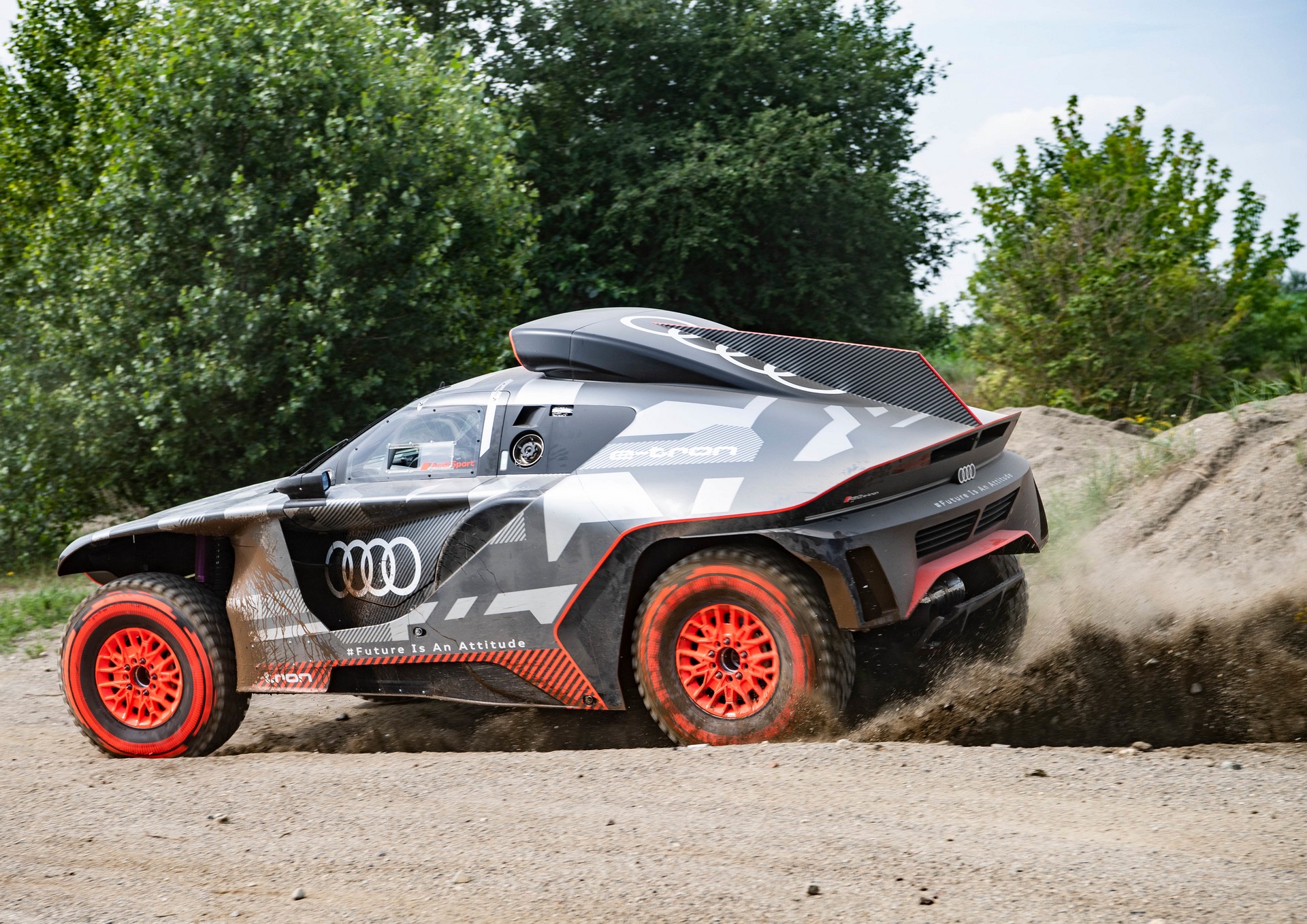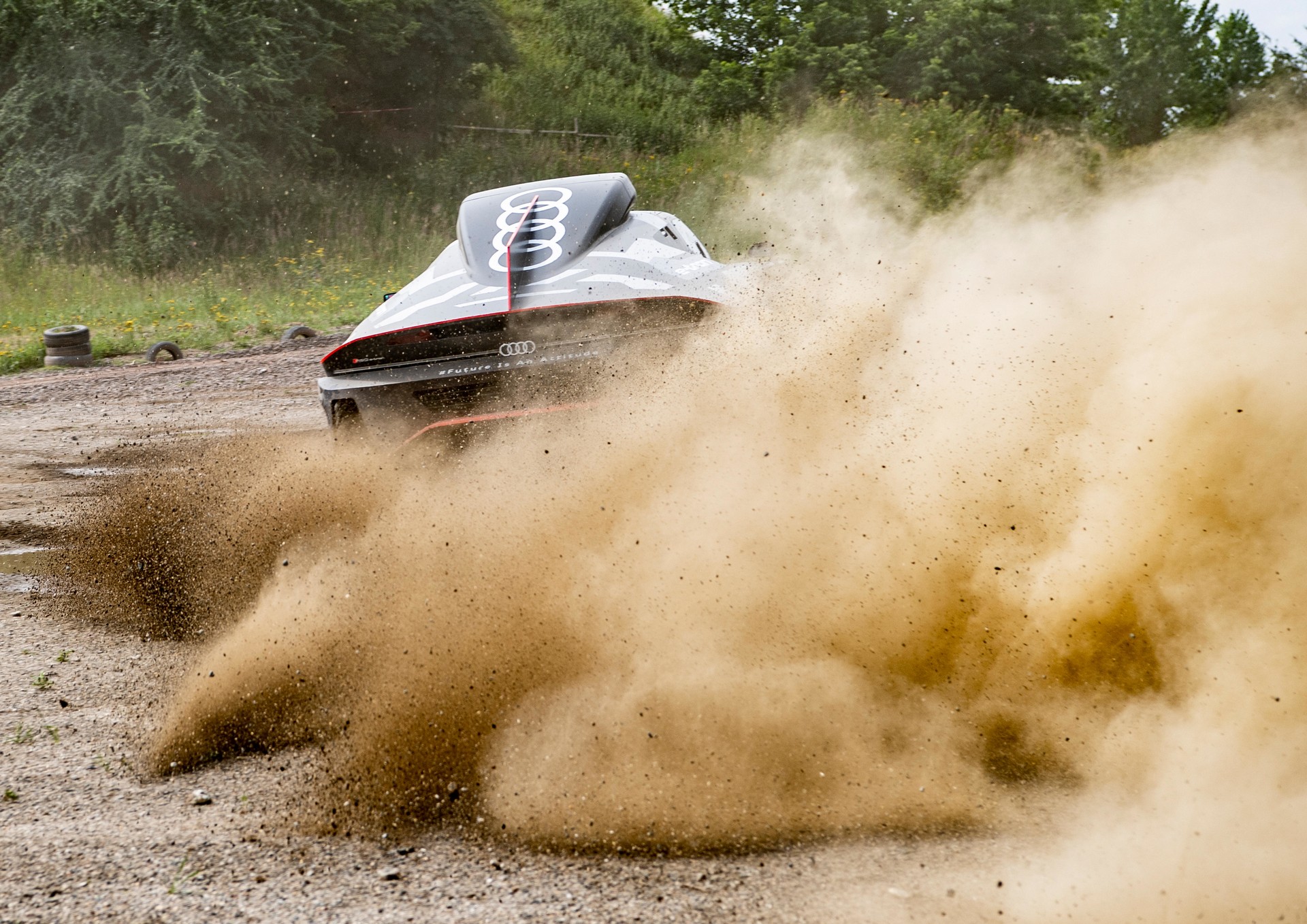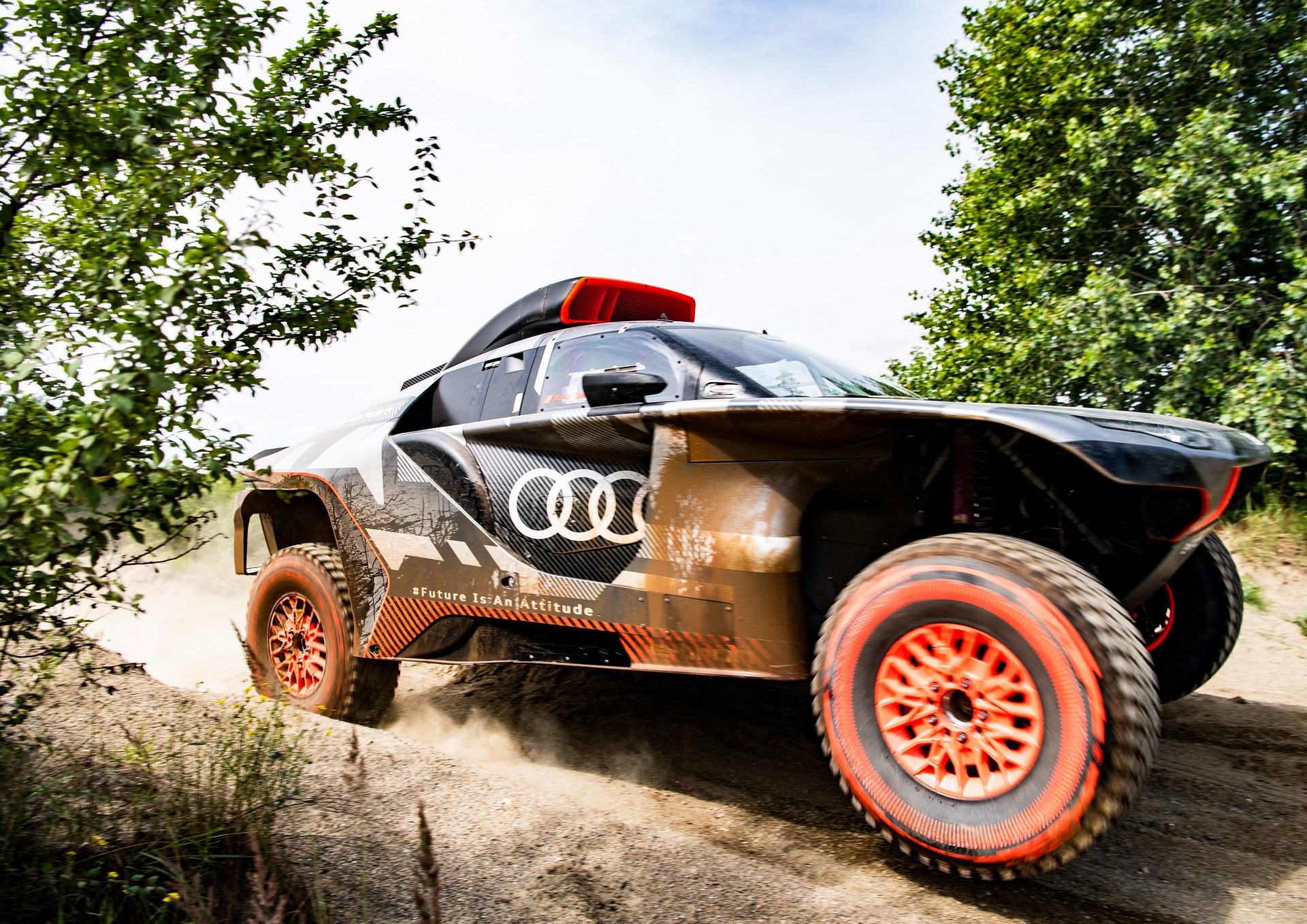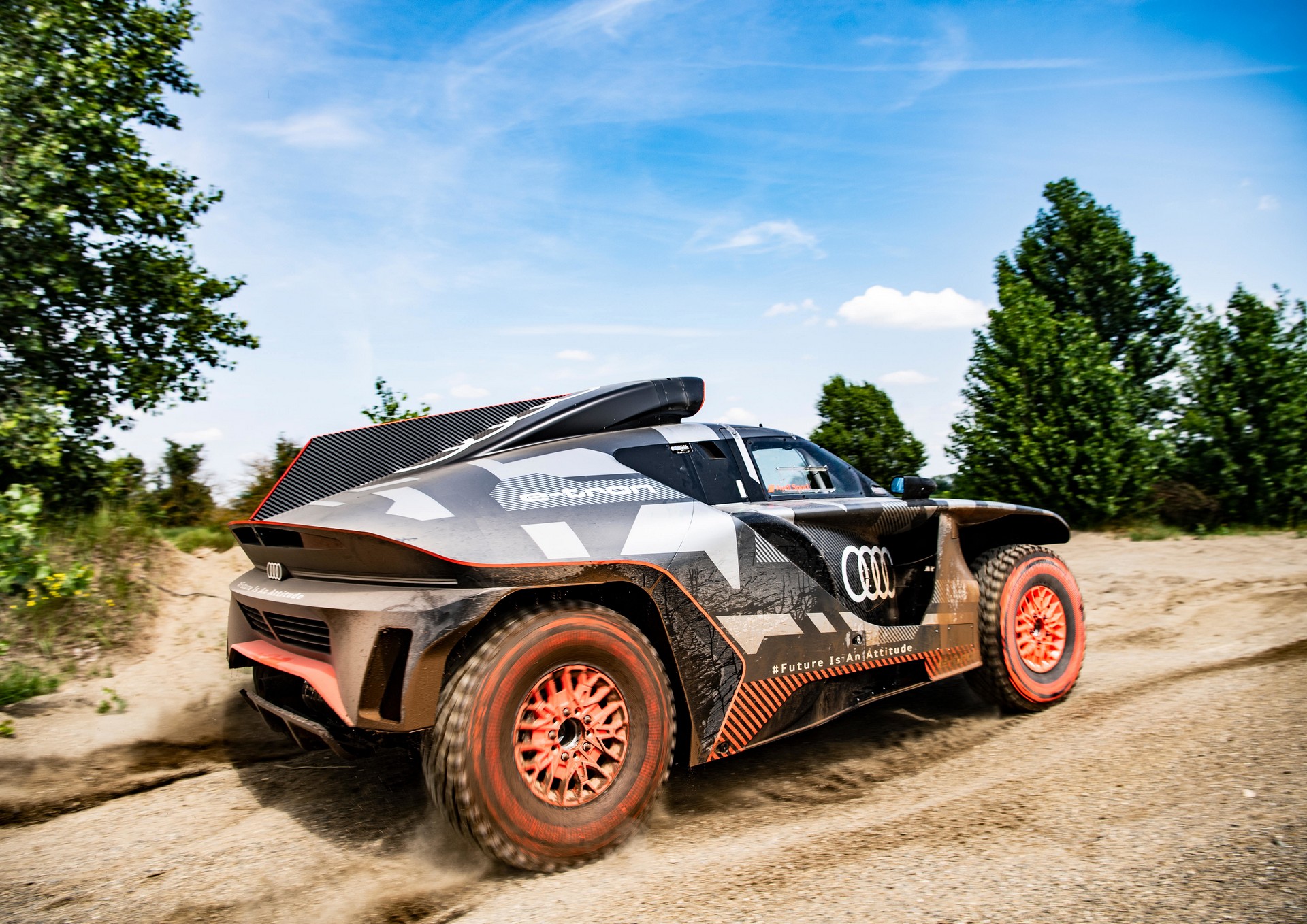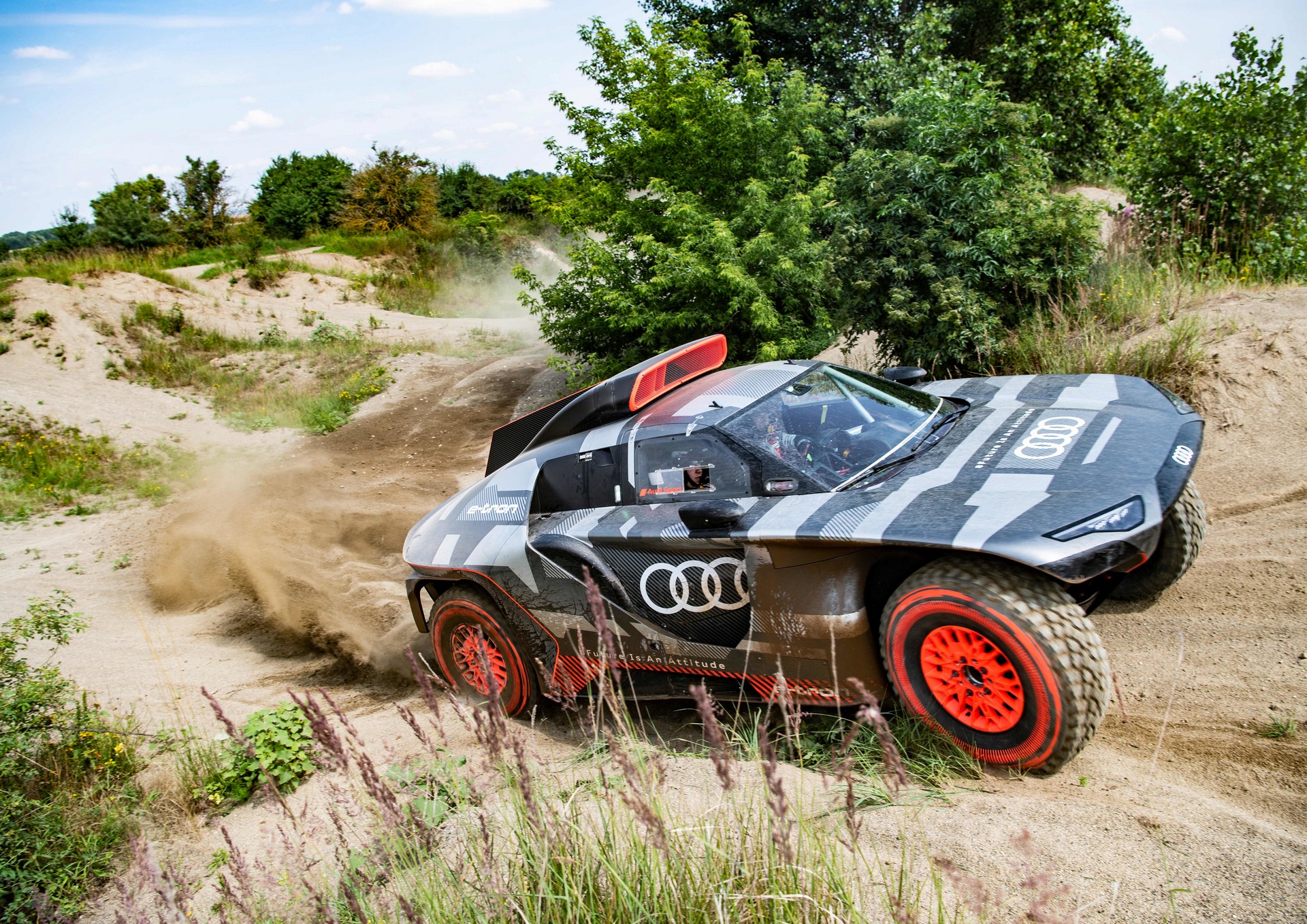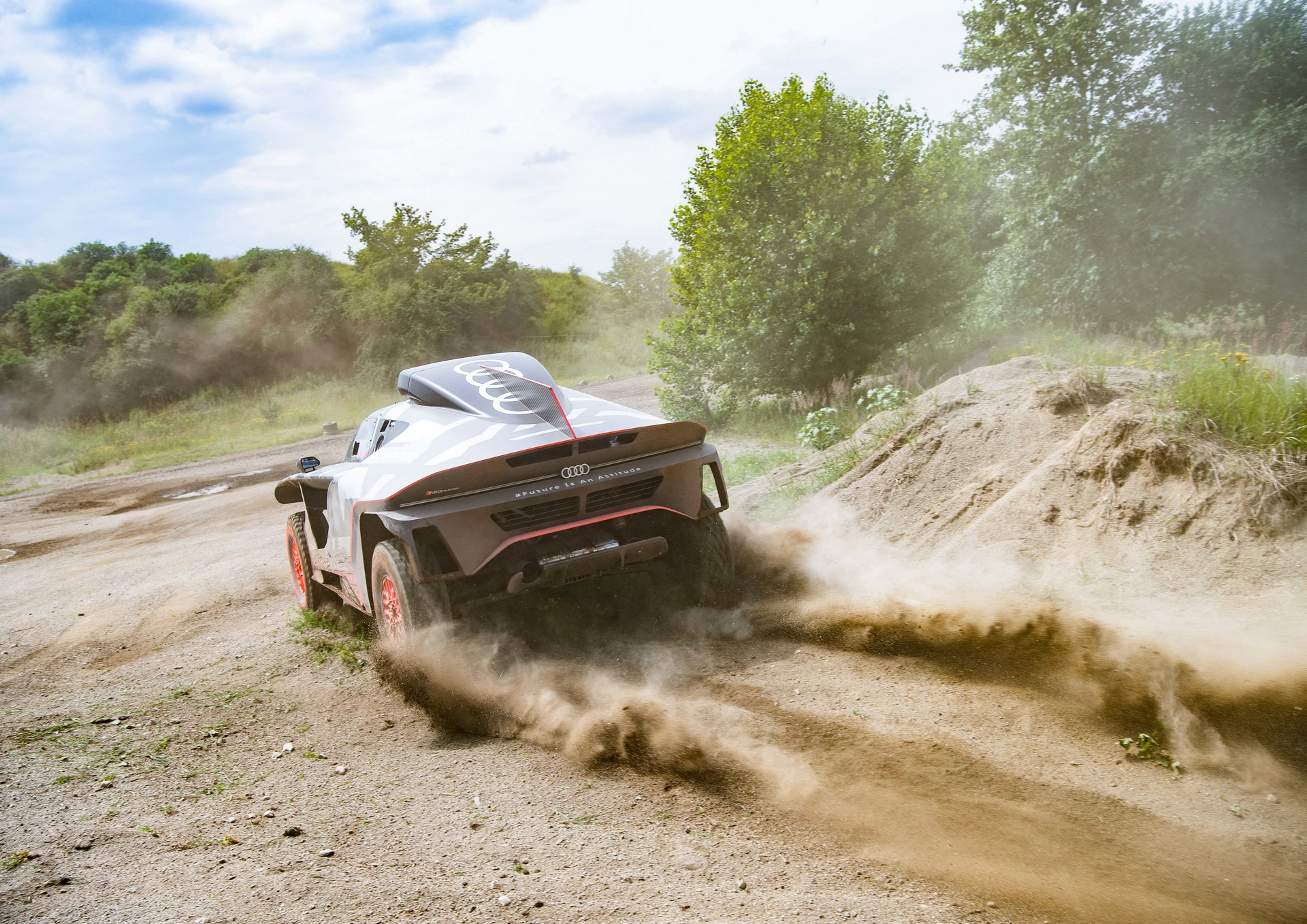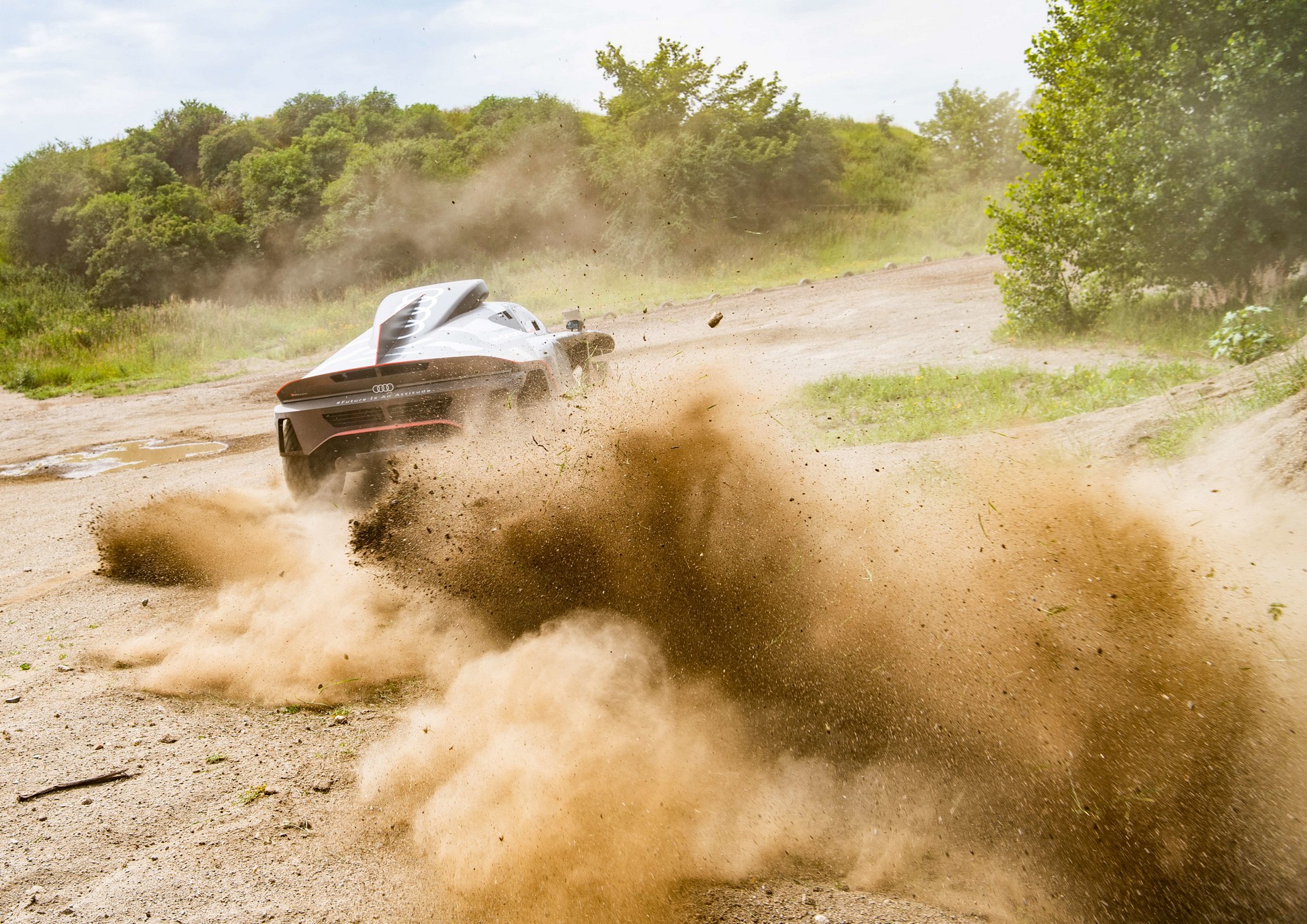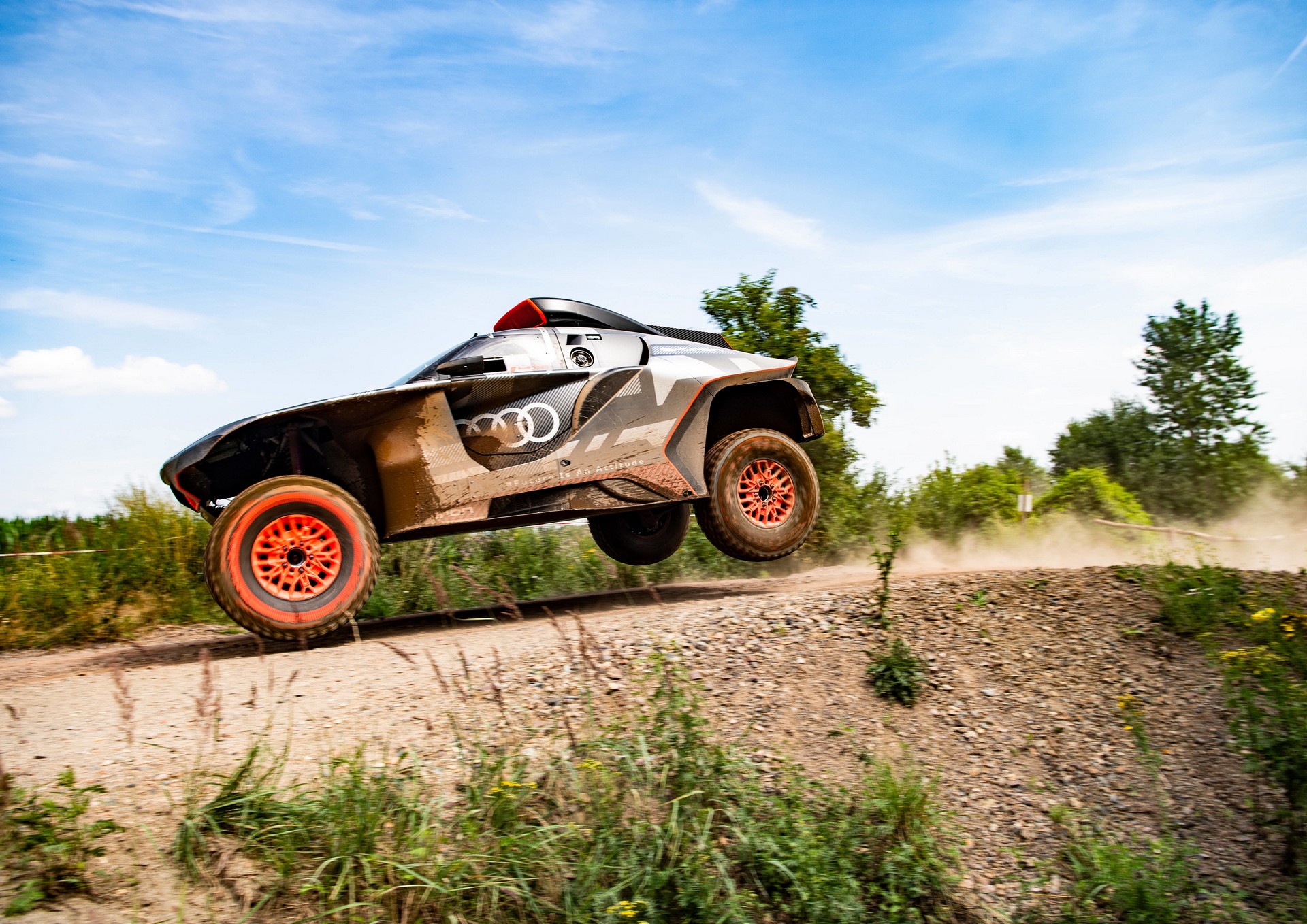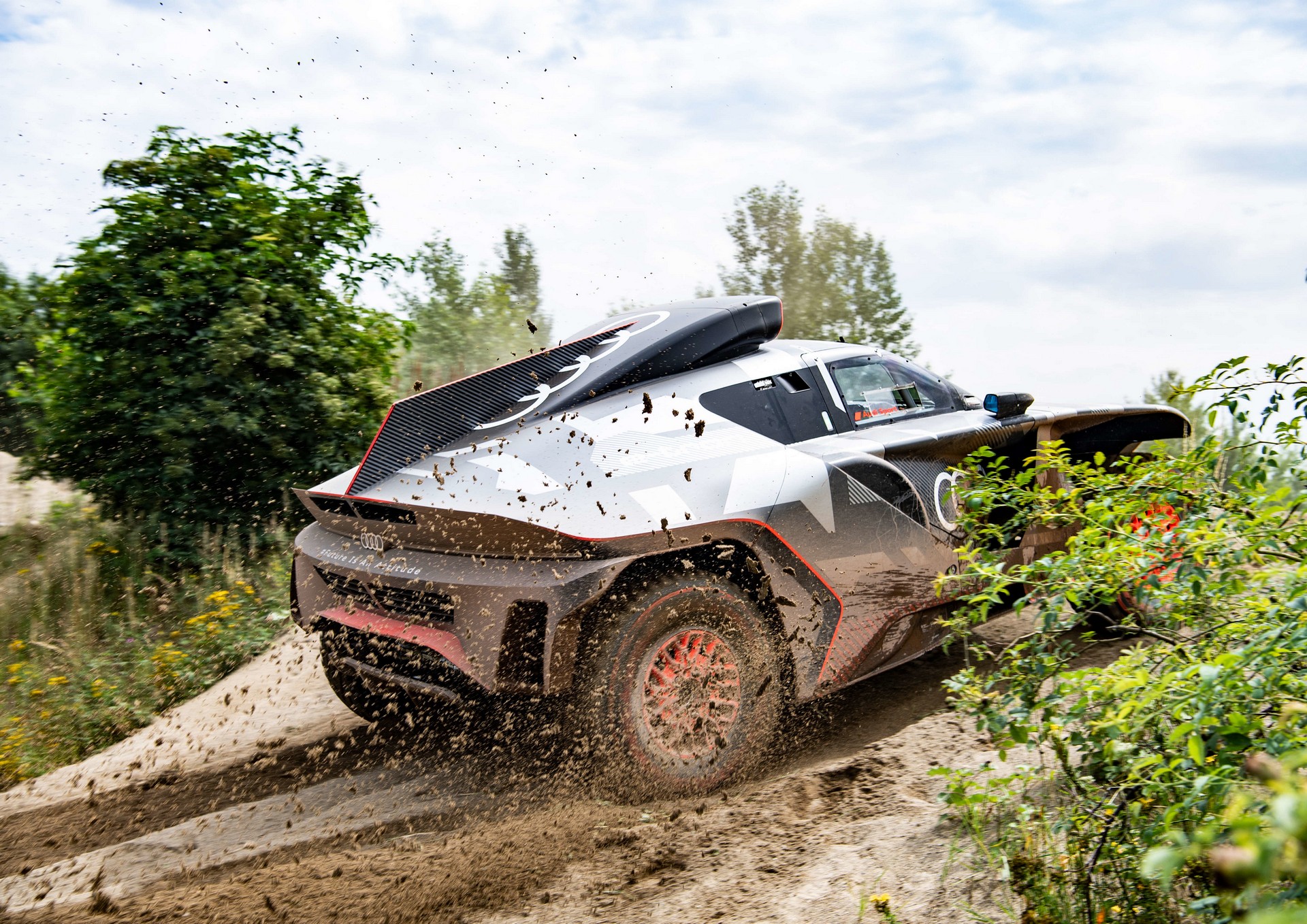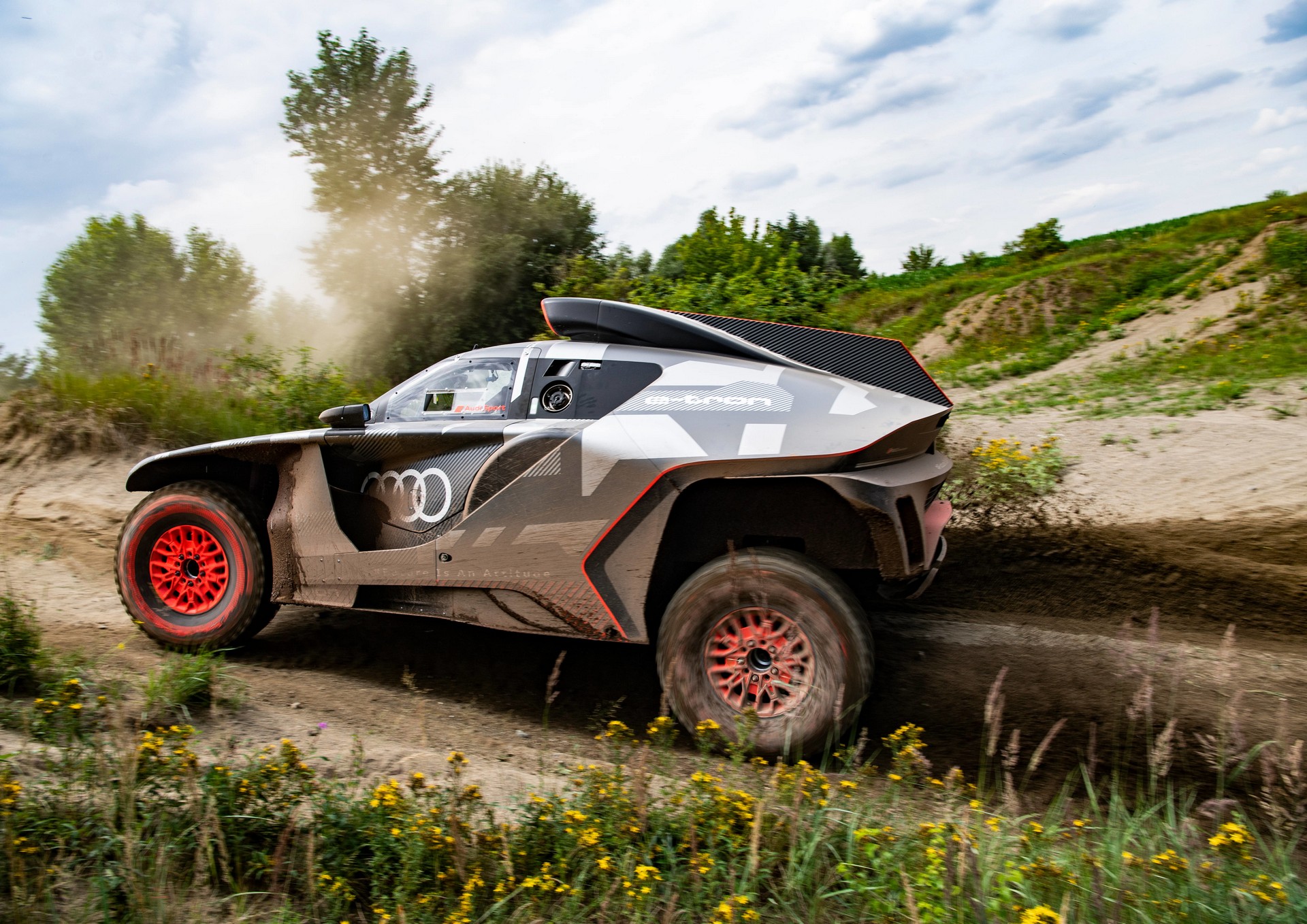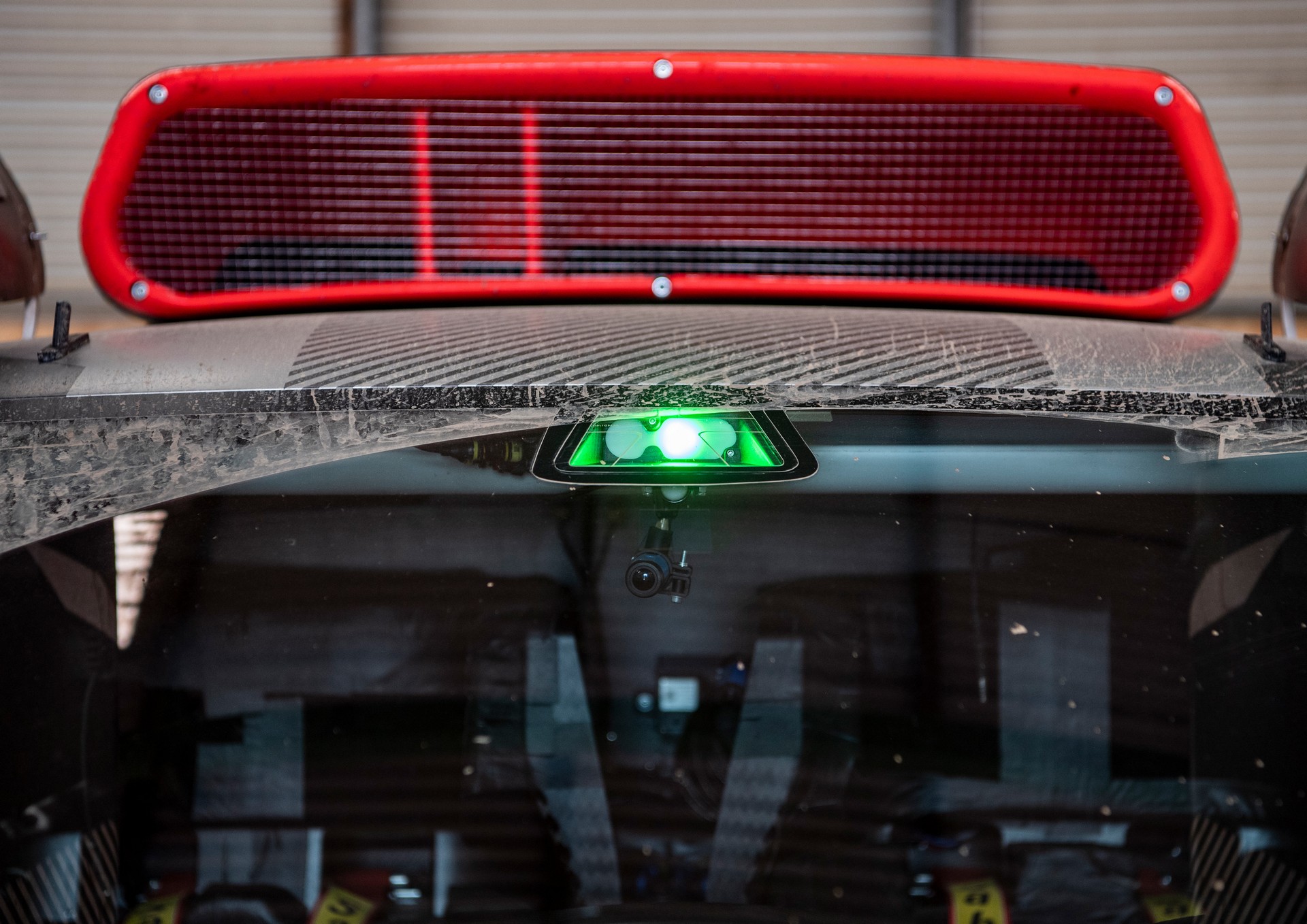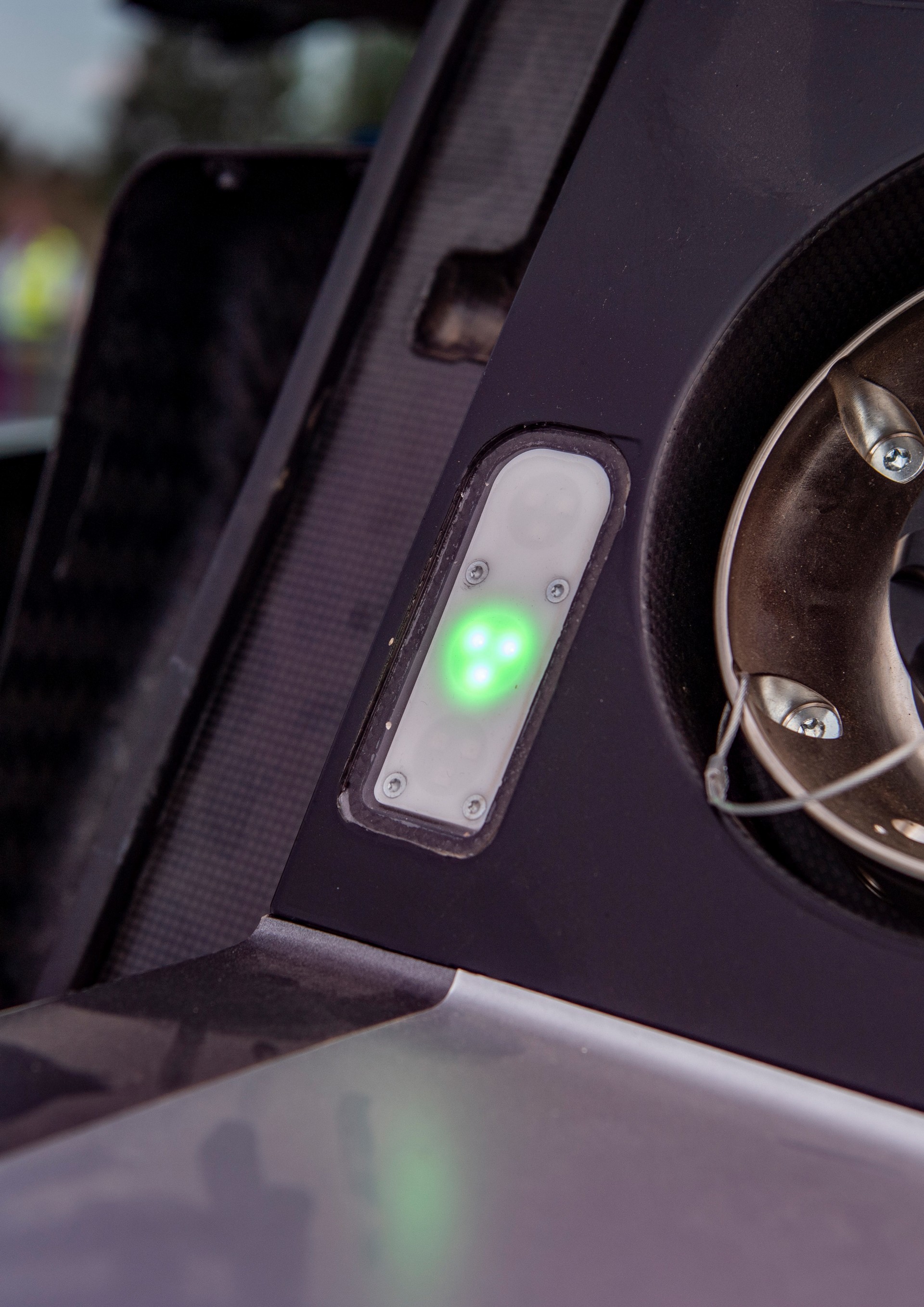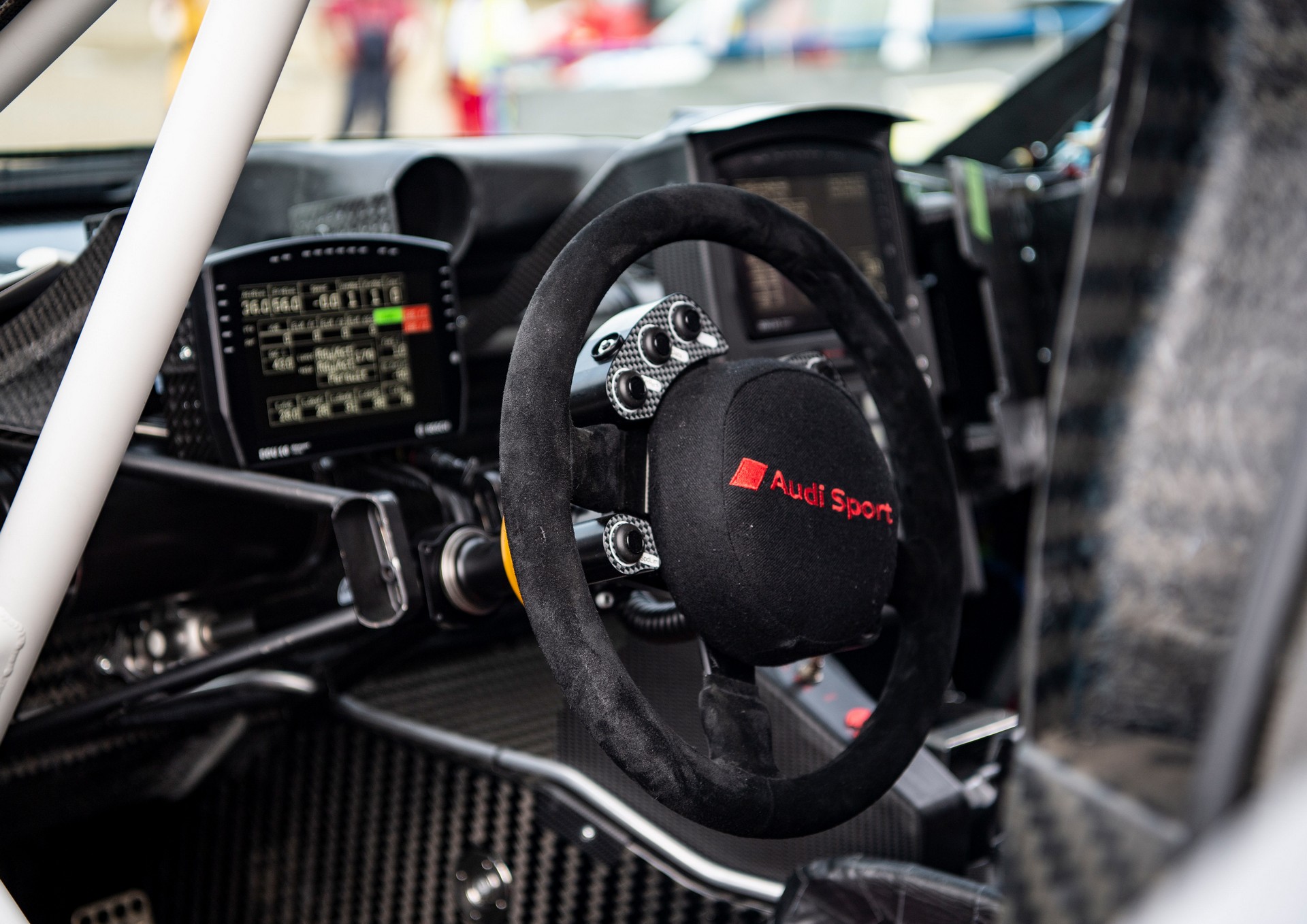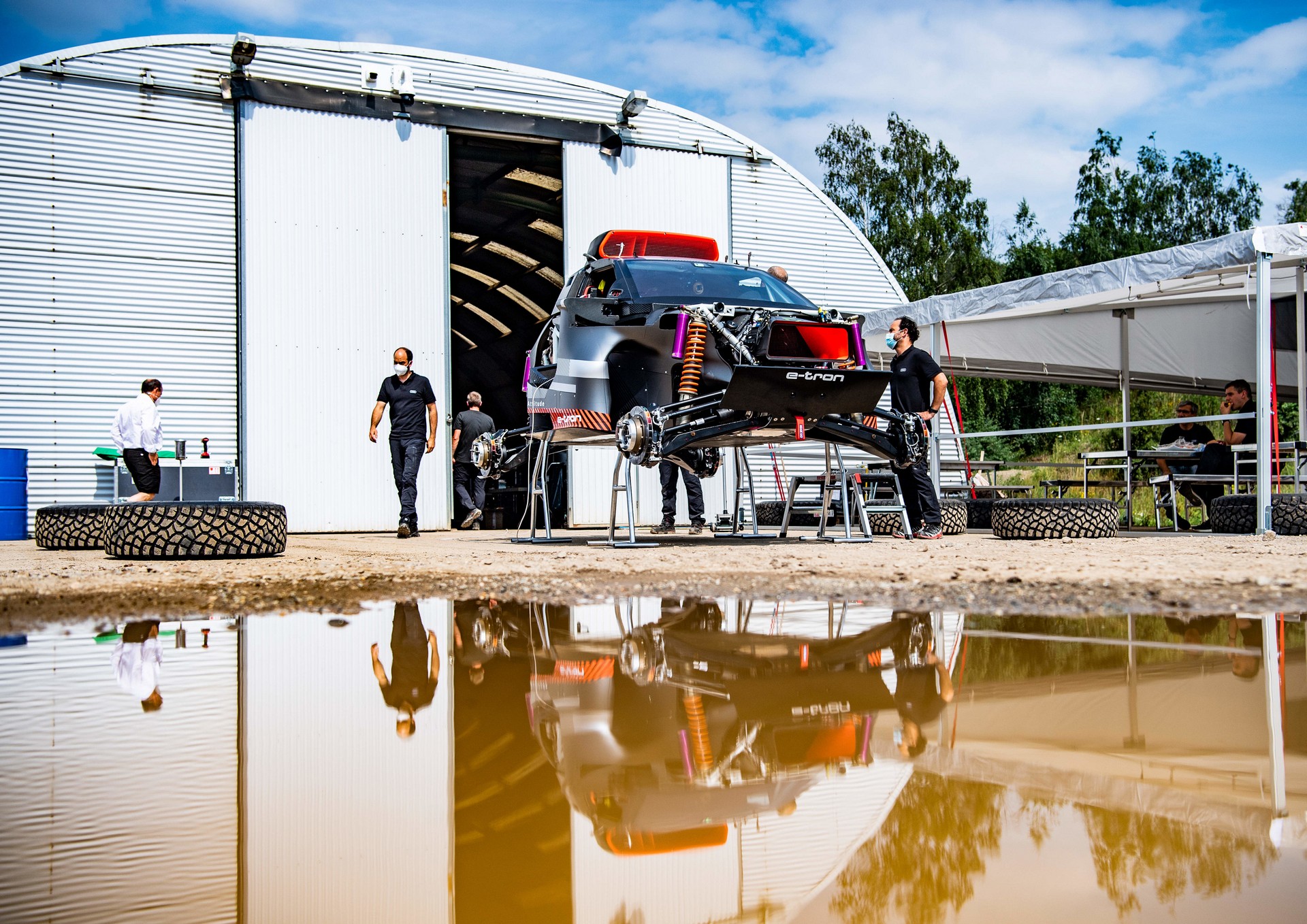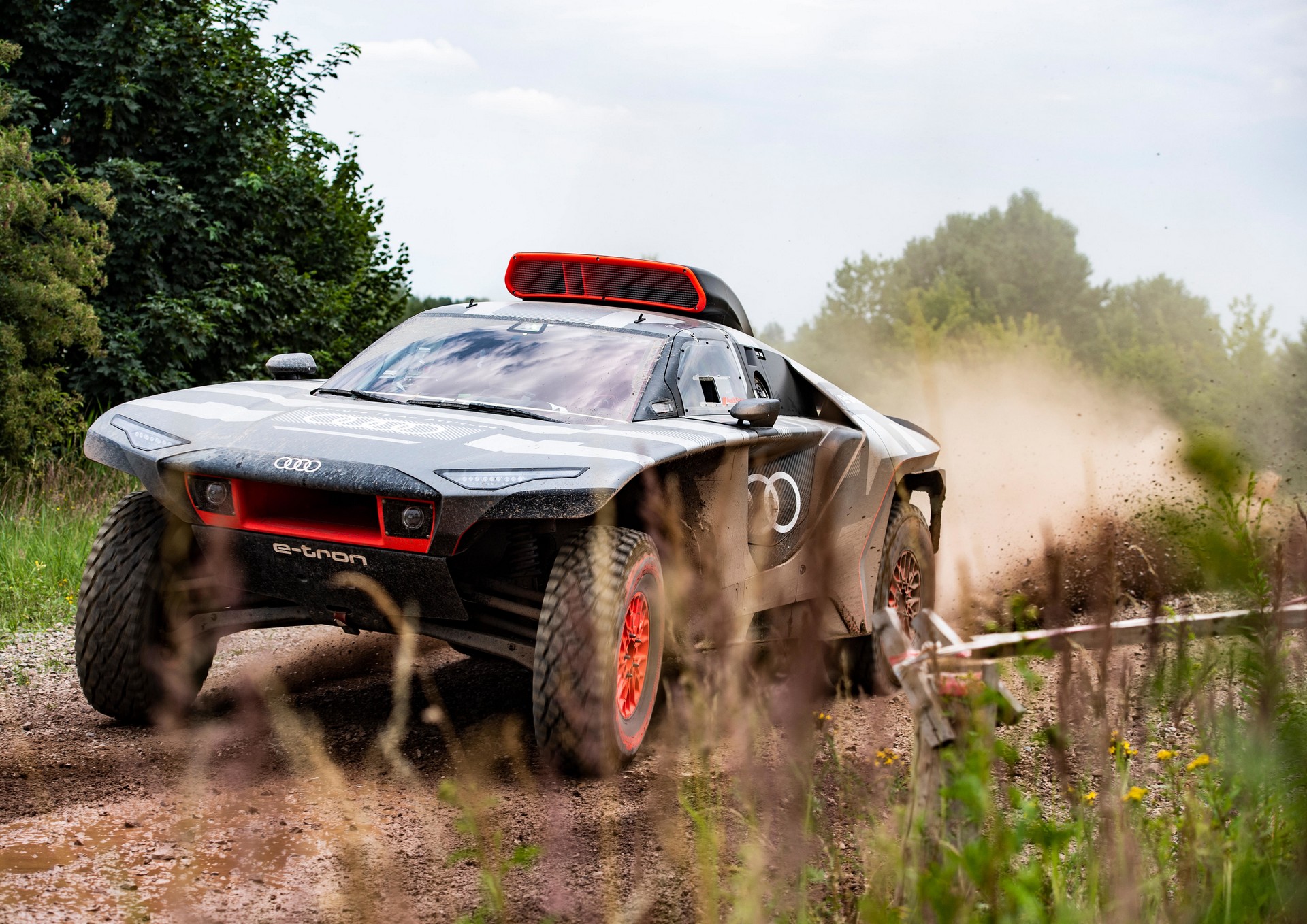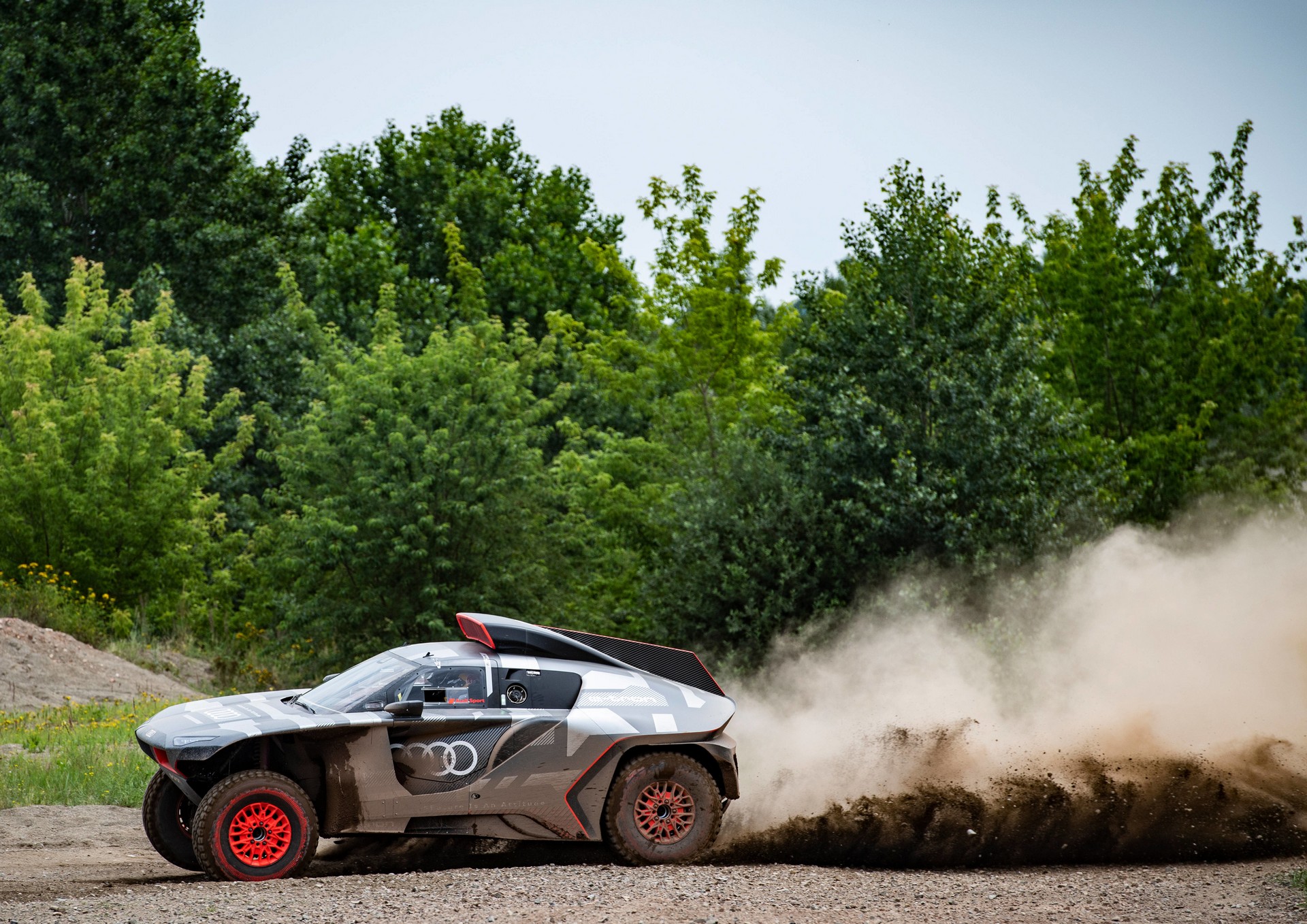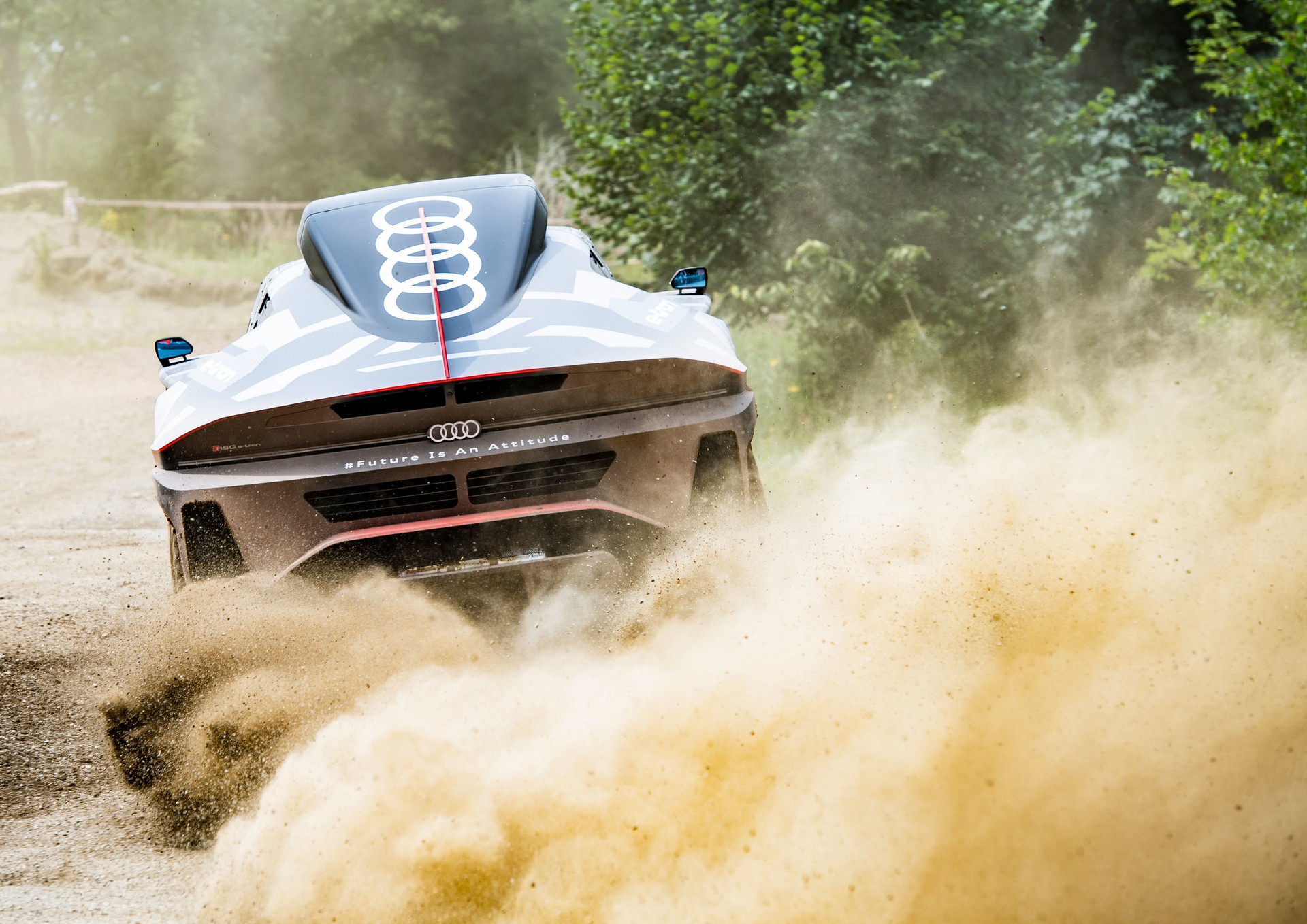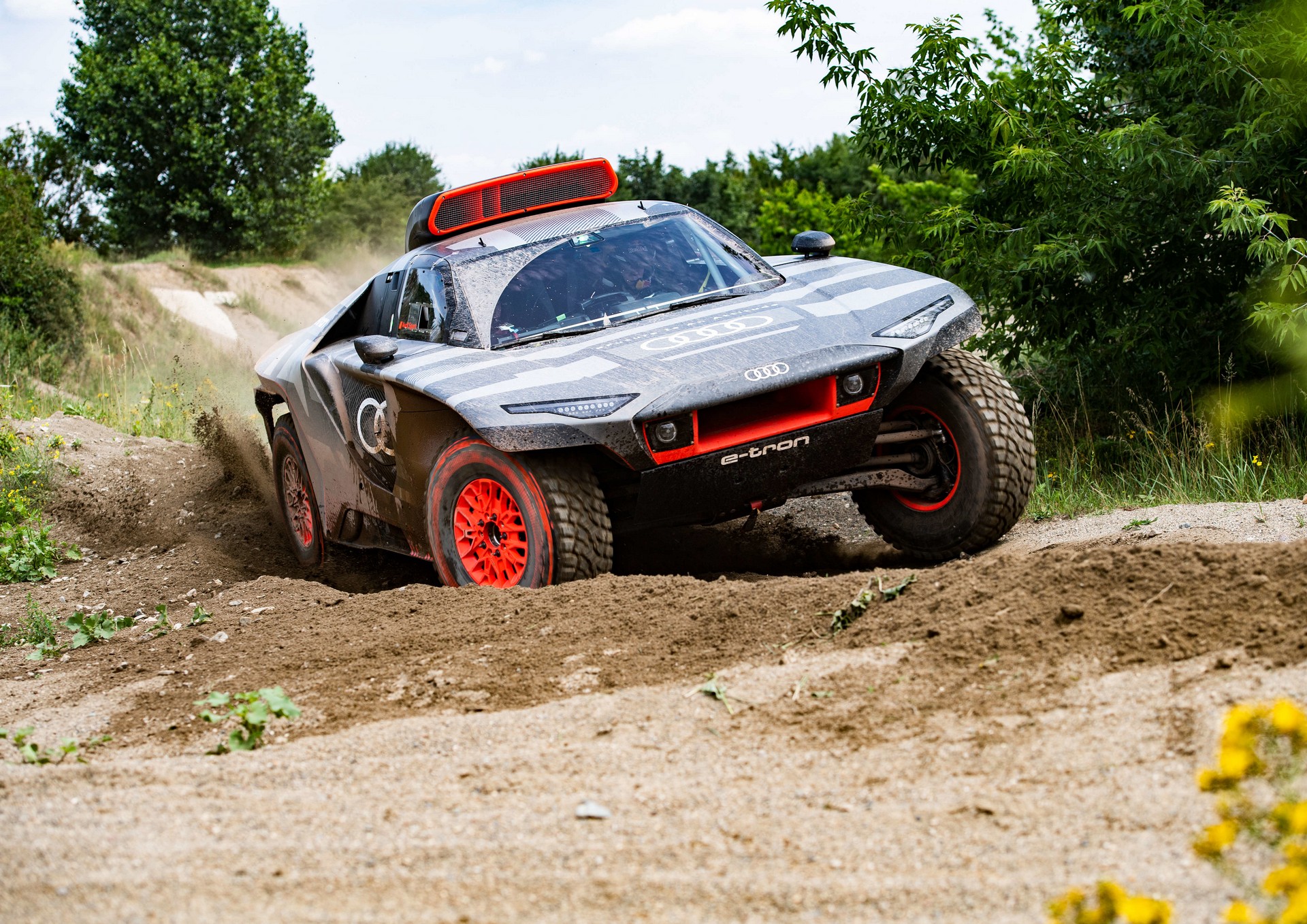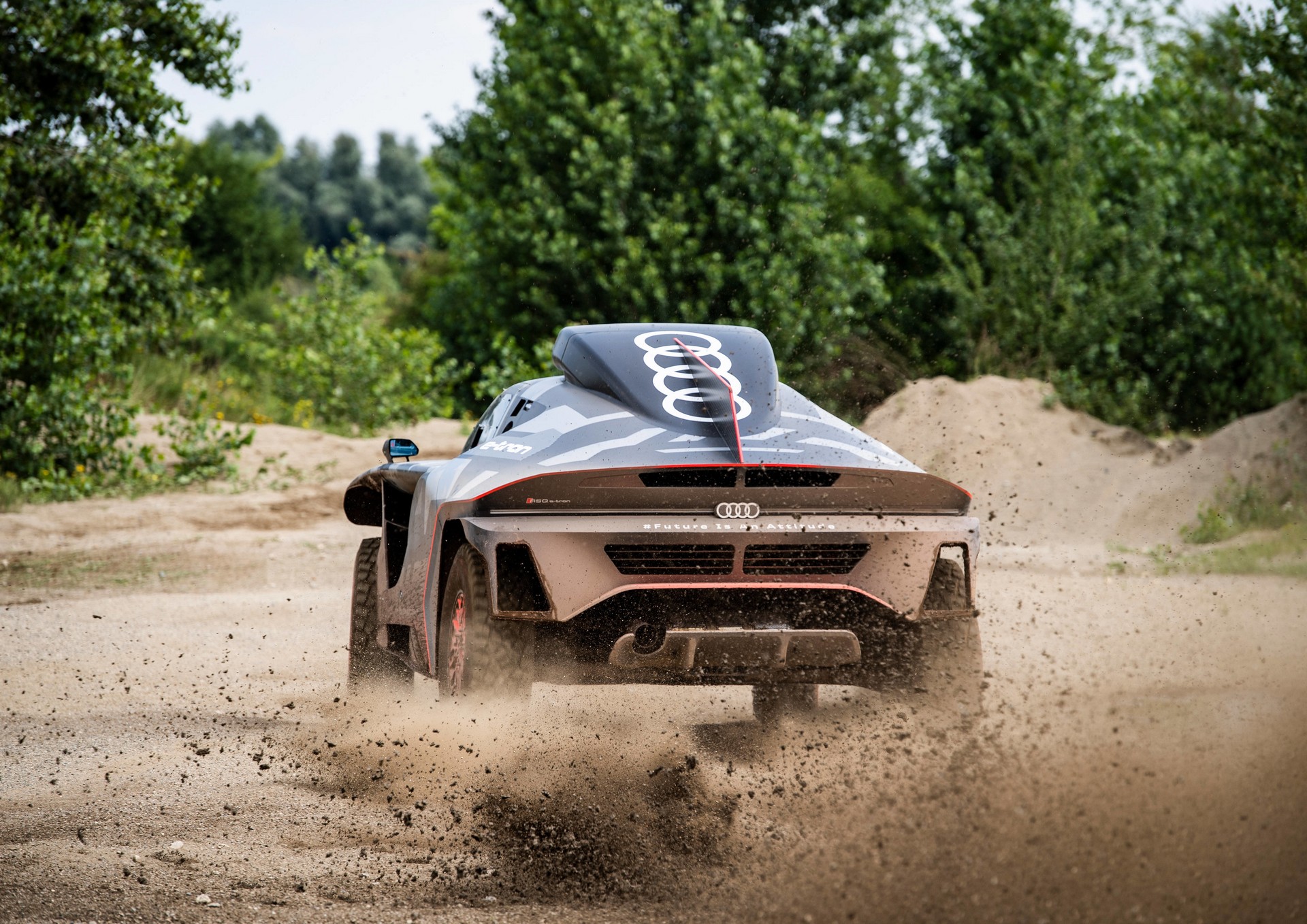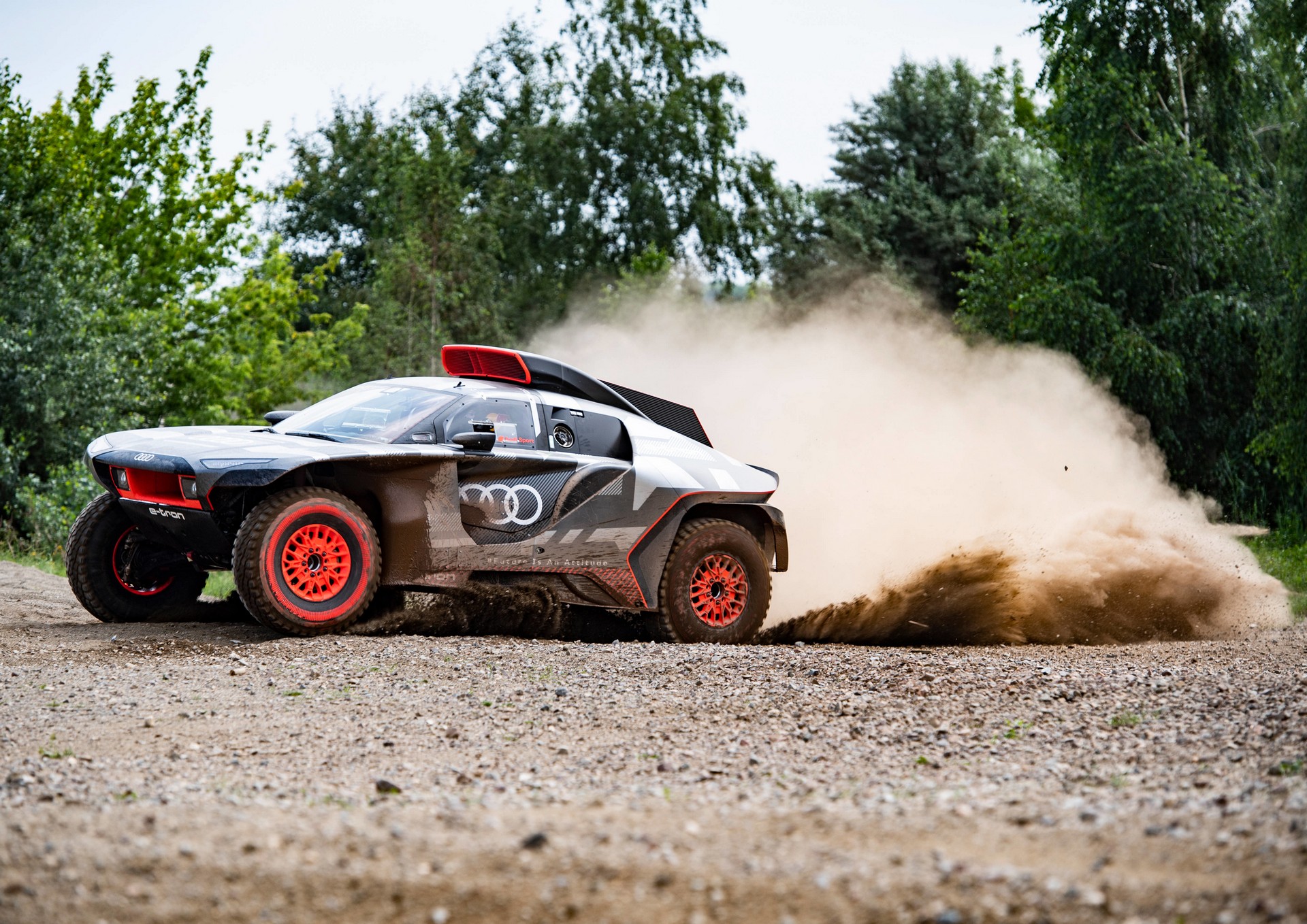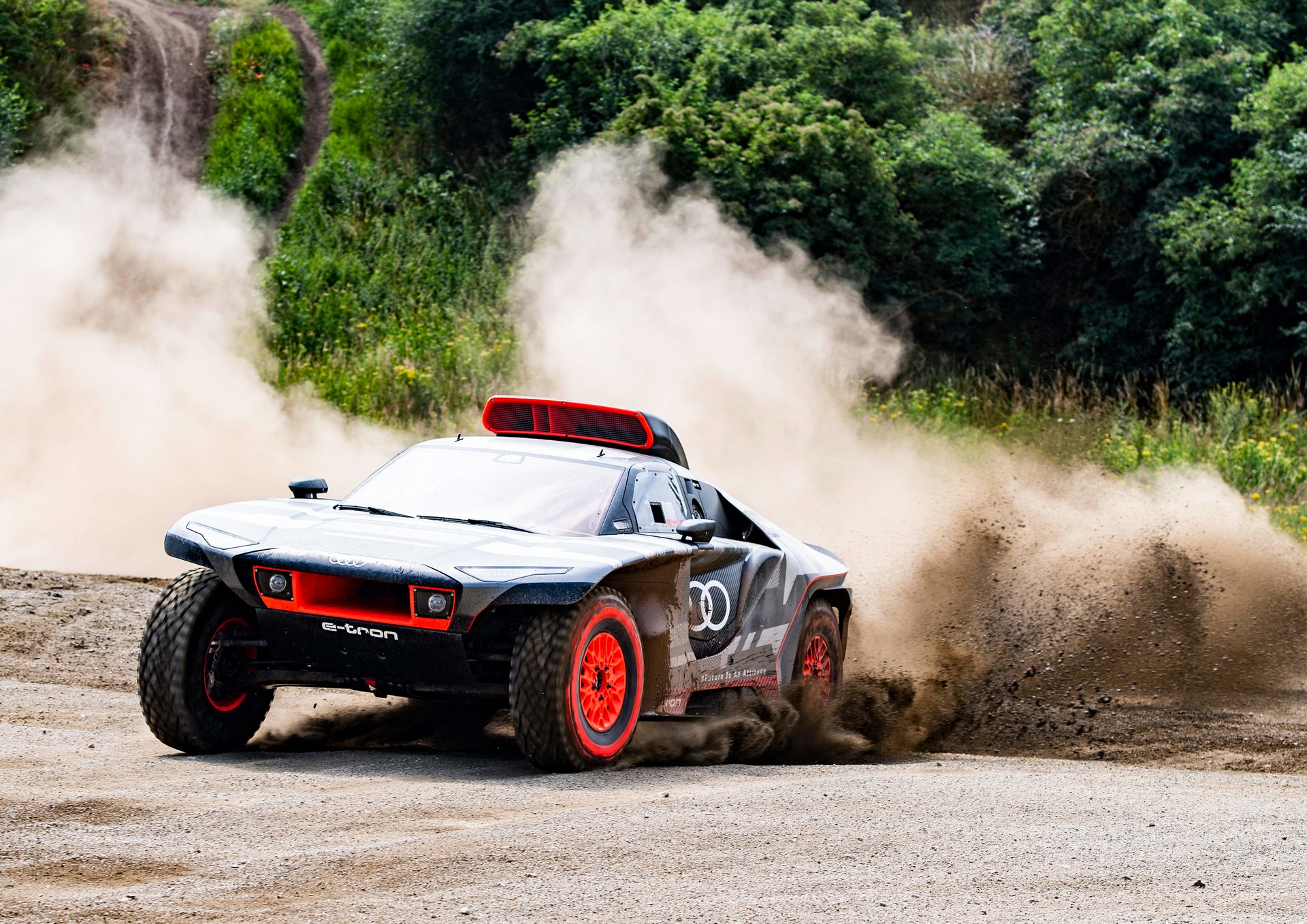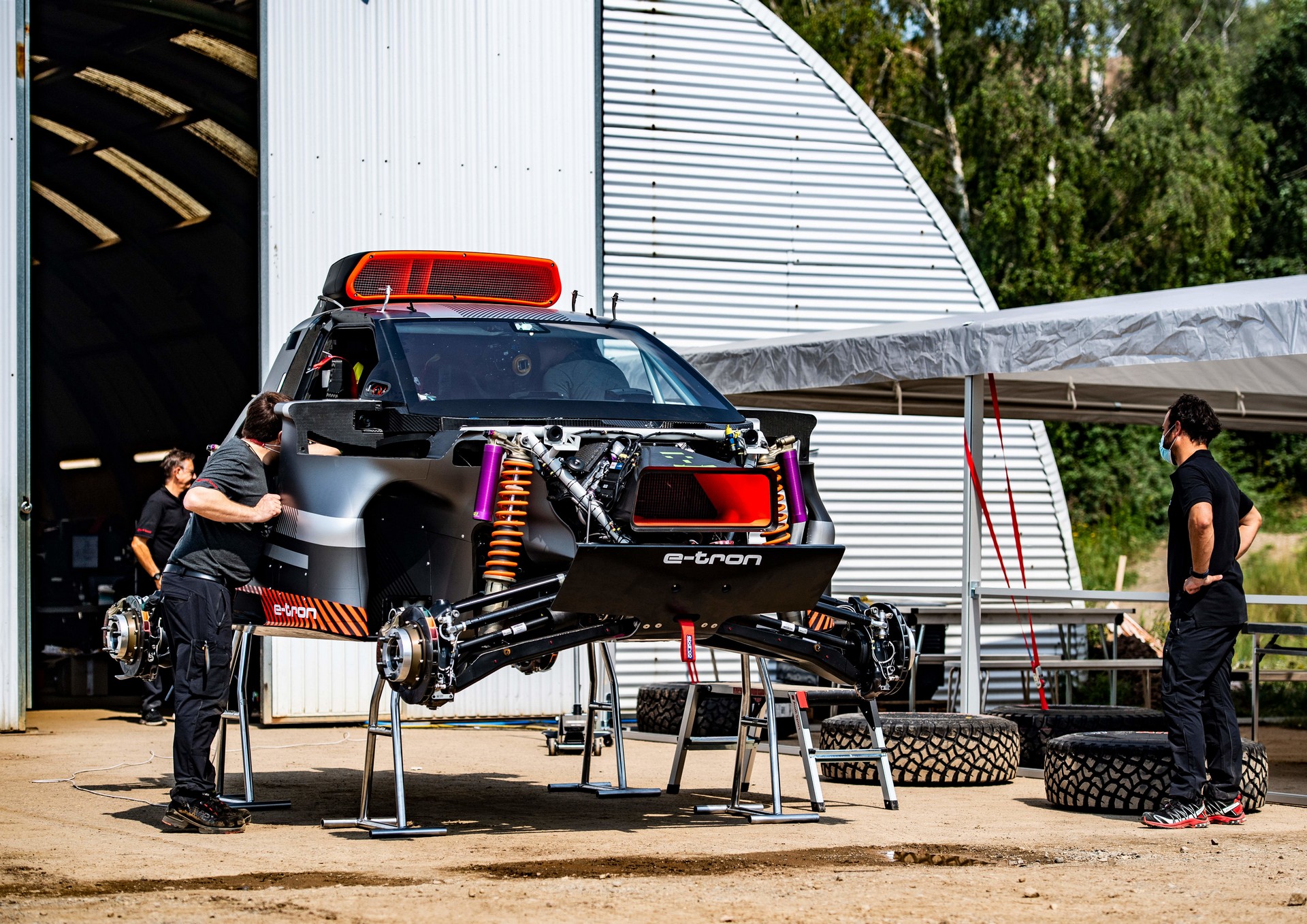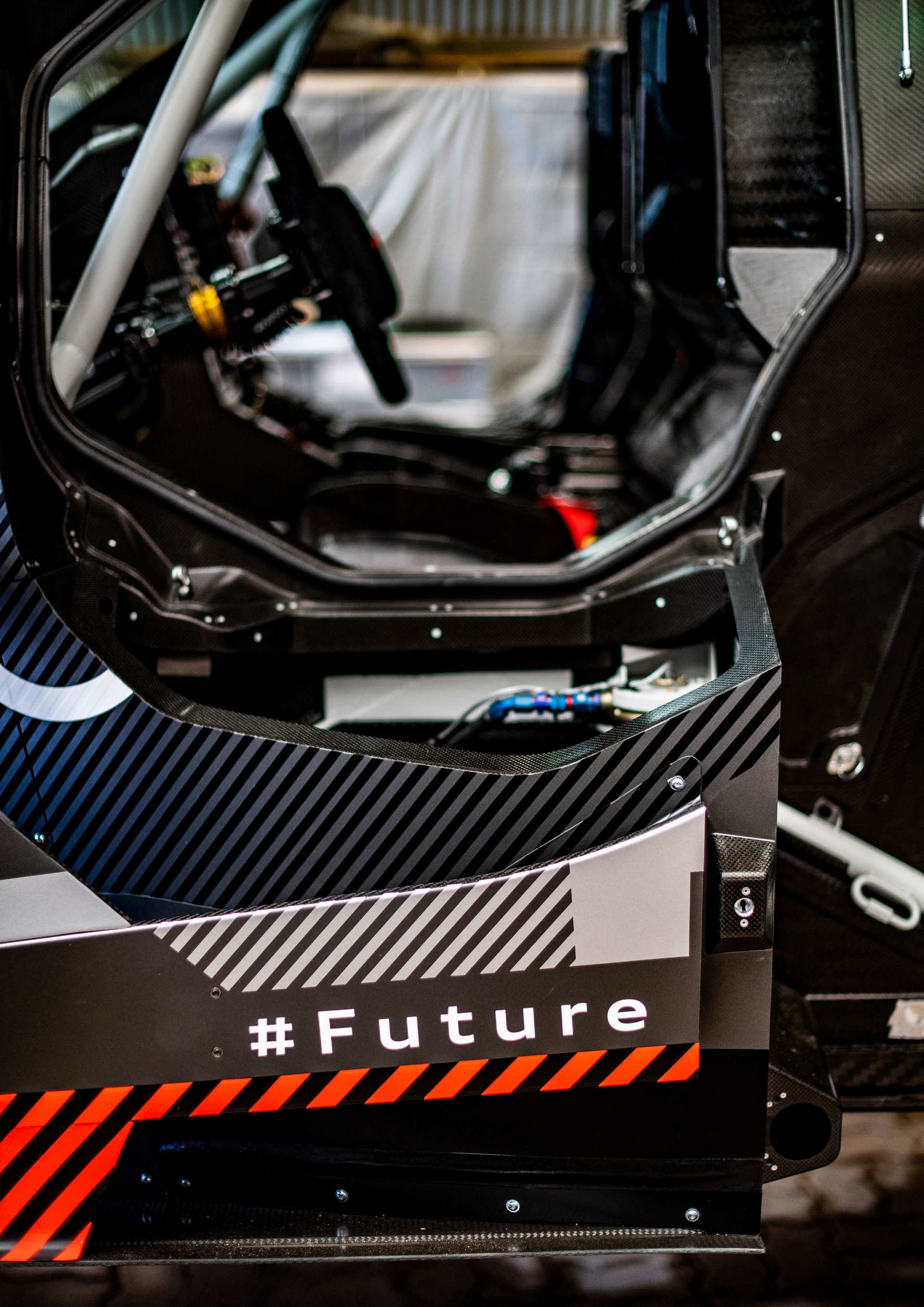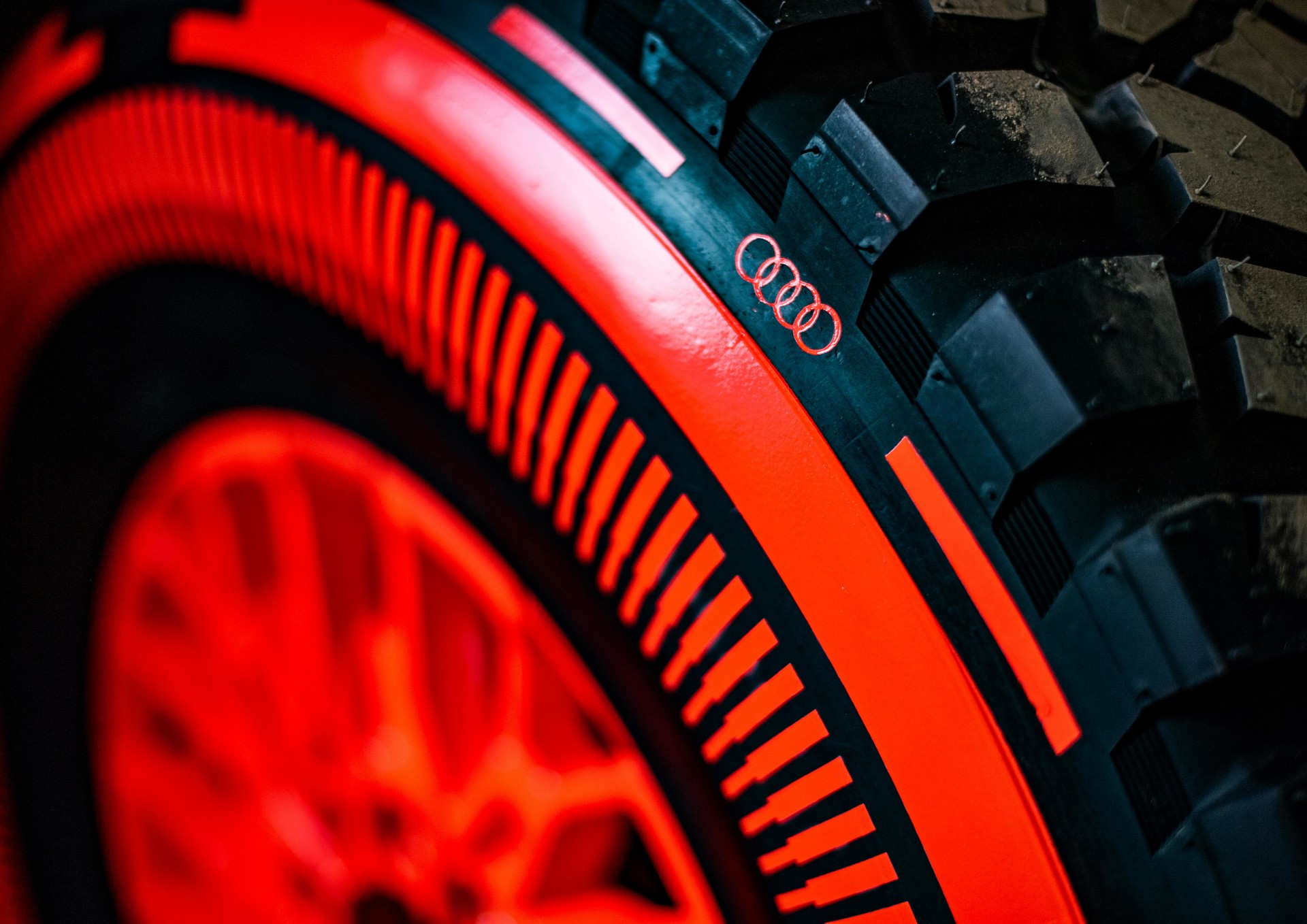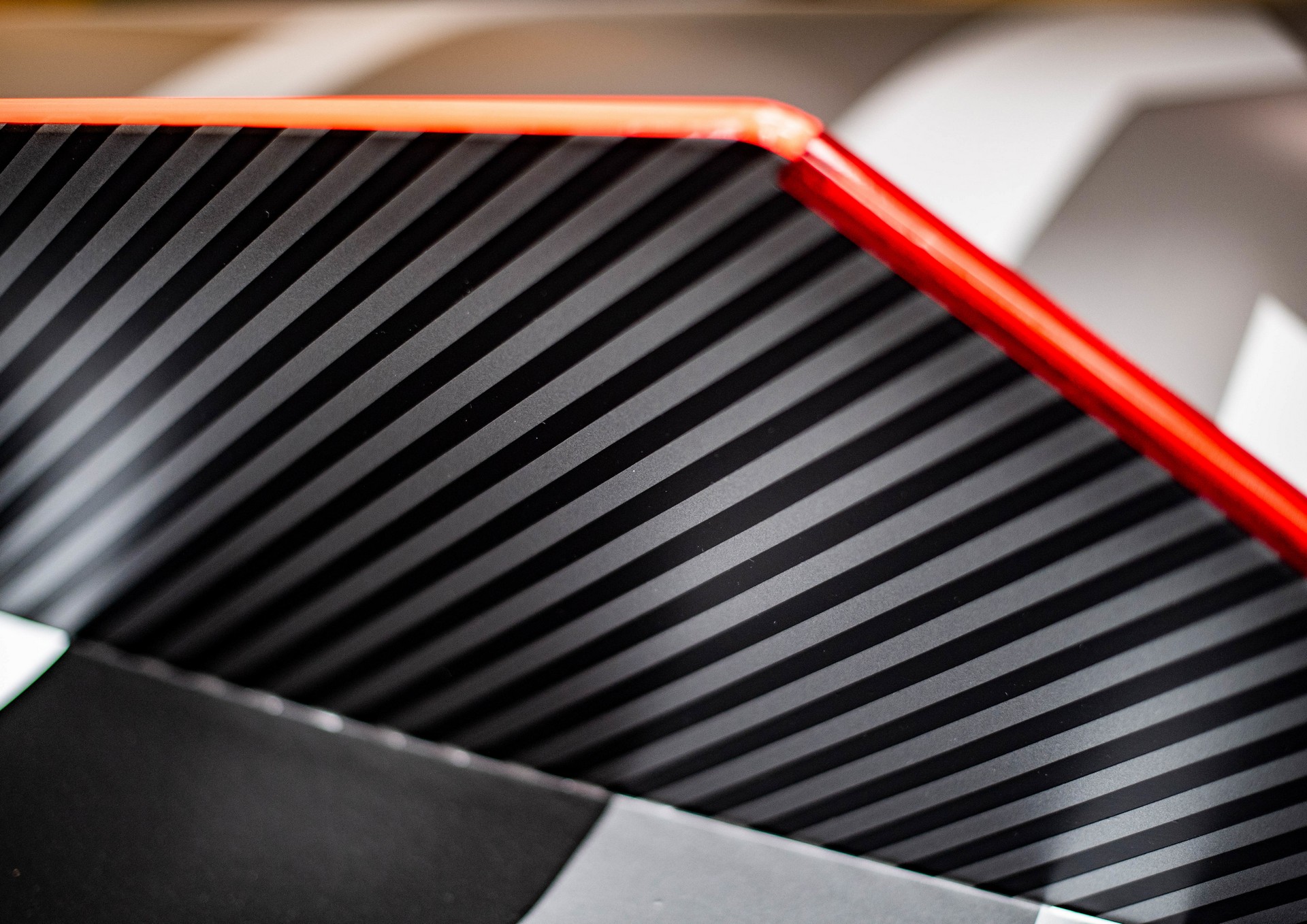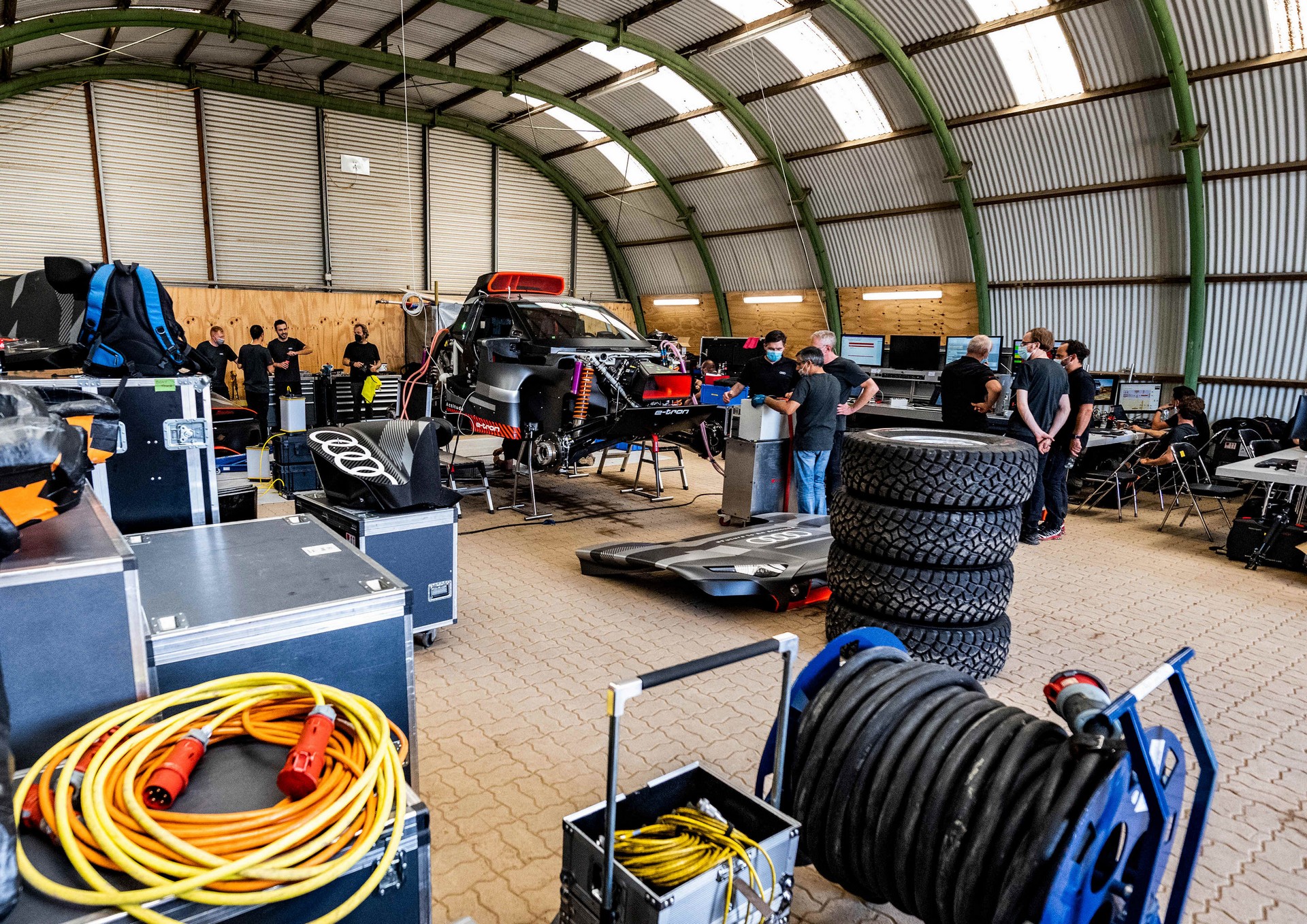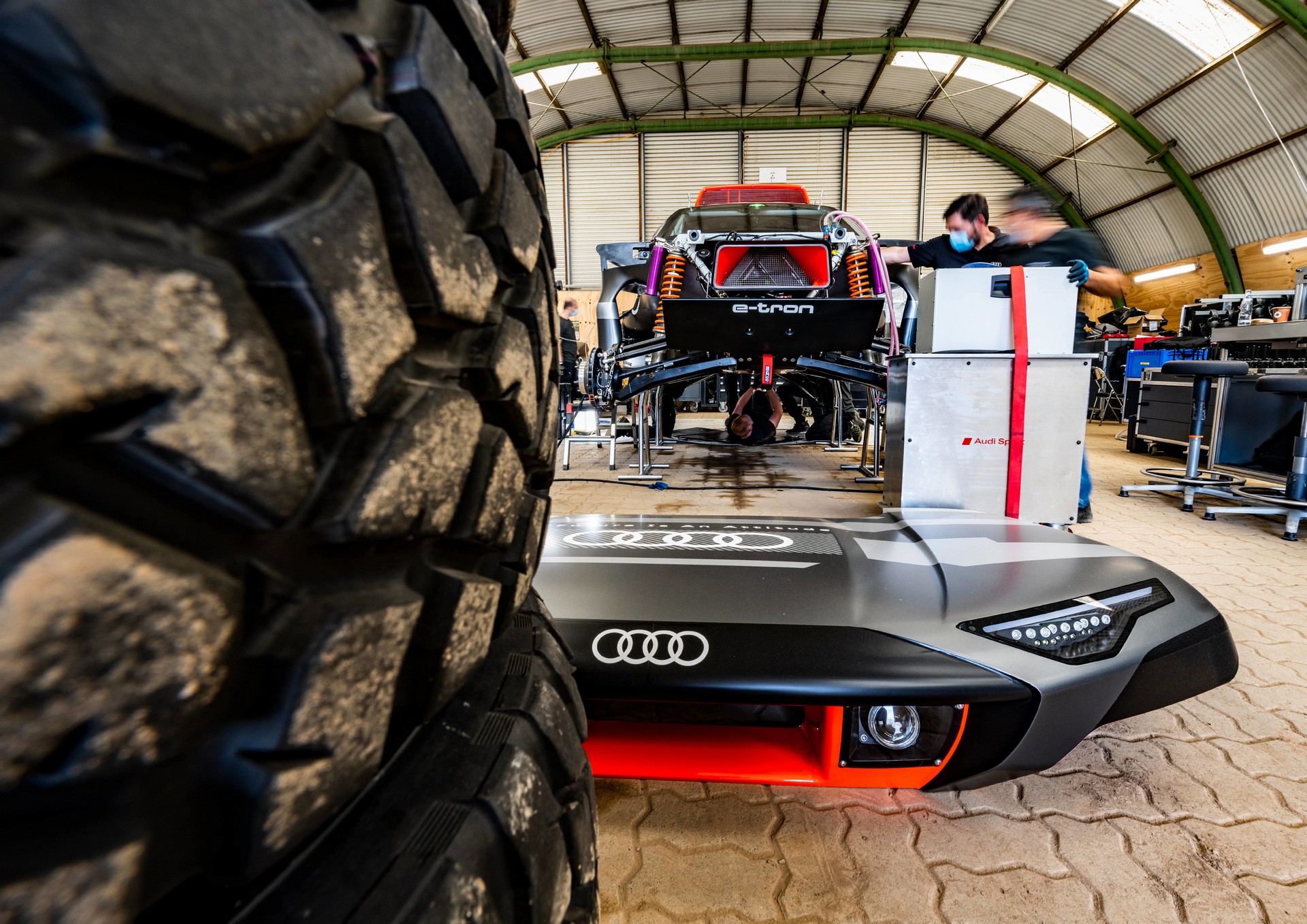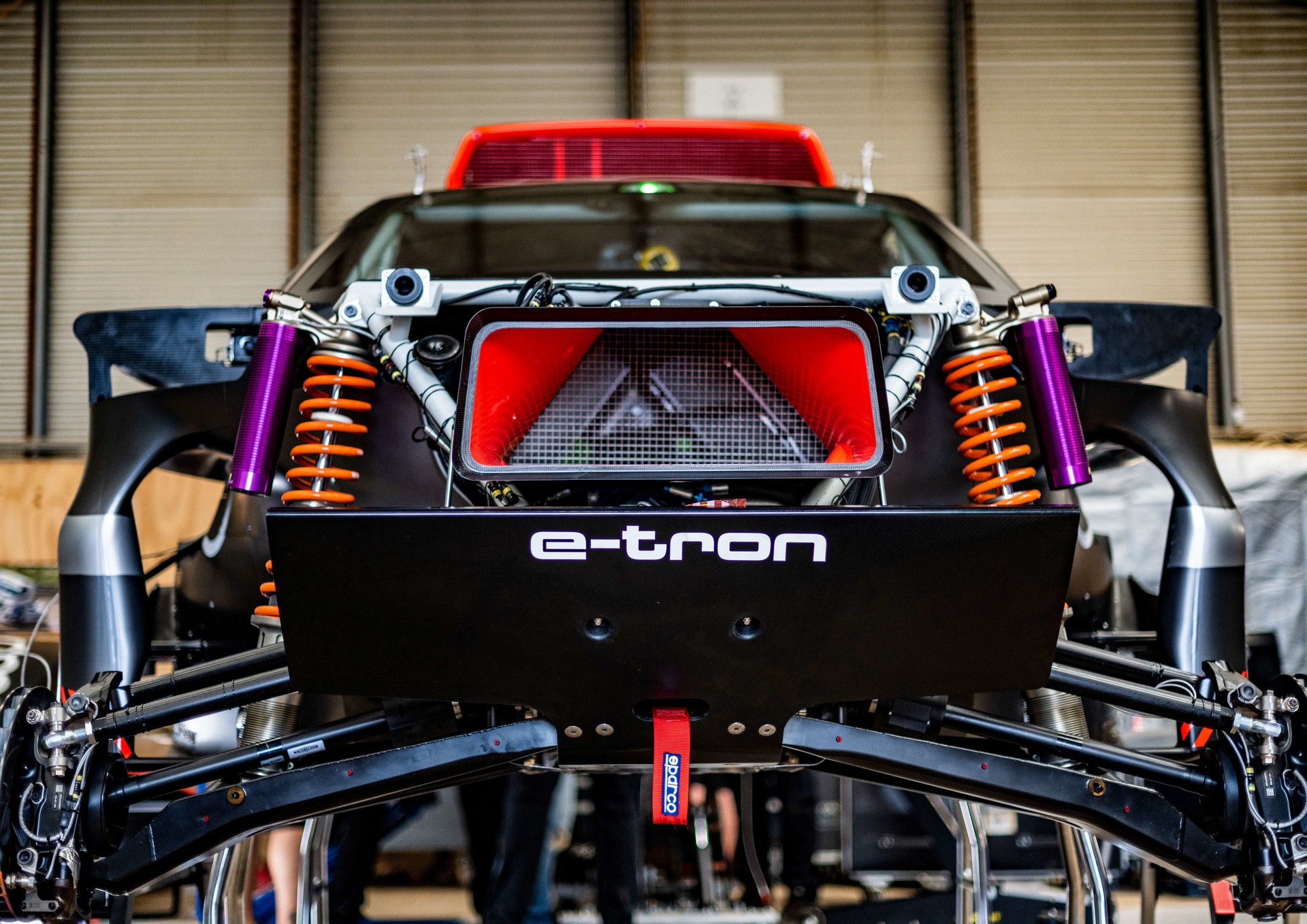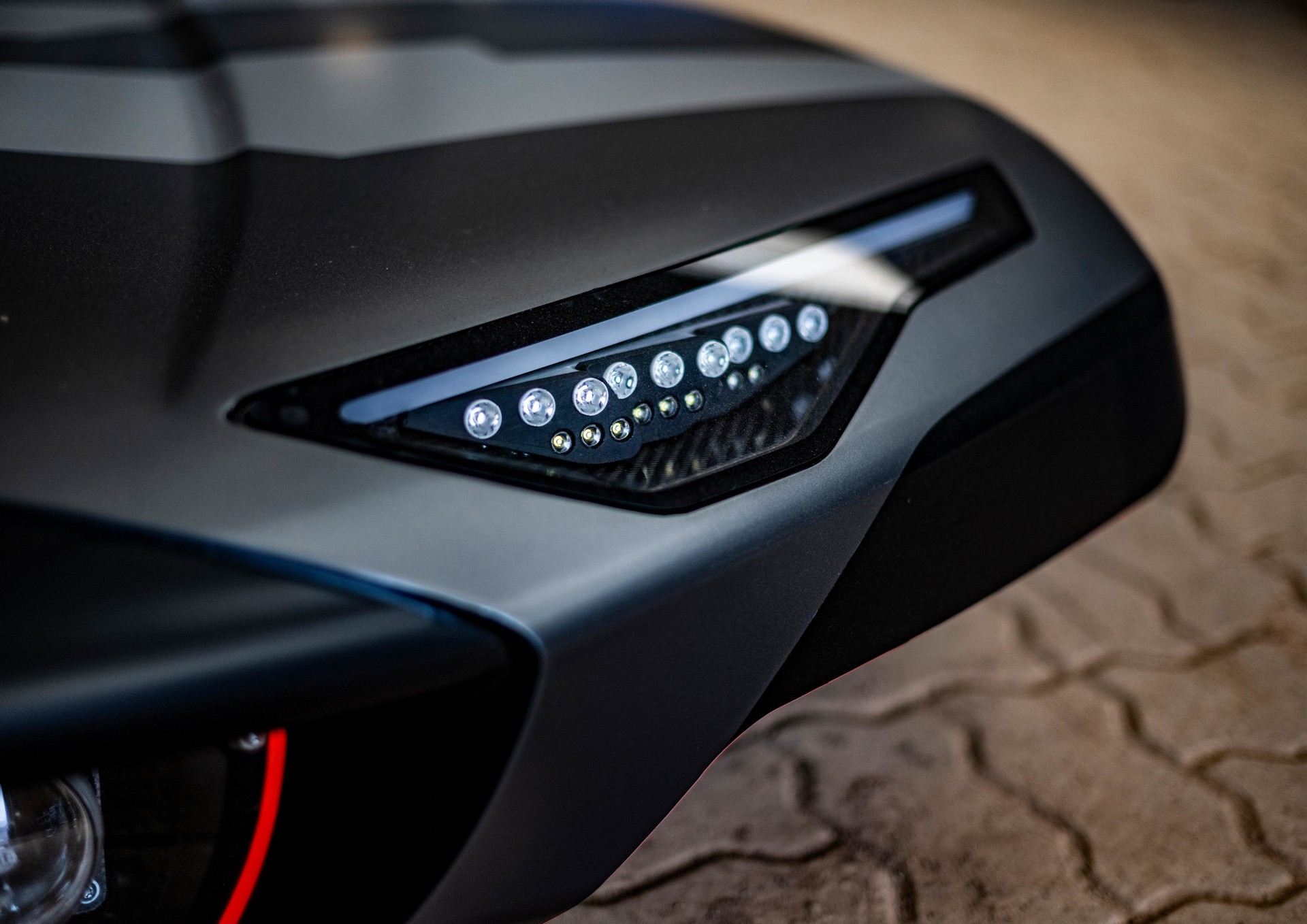Audi is going electric and that effort extends to motorsport as the company has unveiled the all-new RS Q e-tron.
Set to compete in the 2022 Dakar Rally, the RS Q e-tron is being billed as a “high-tech test laboratory” that will face “one of the greatest challenges” in racing.
That’s especially true when you consider the RS Q e-tron is electric and will need to compete in daily stages that are up to 497 miles (800 km) long. Since there’s no charging infrastructure in the desert, the model has been equipped with a “highly efficient” 2.0-liter TFSI four-cylinder engine which acts as a generator to recharge the batteries.
Also Read: Audi Teases Extreme 2022 Dakar Racer, Announces Plan To Exit Formula E
Speaking of the battery, it weighs approximately 816 lbs (370 kg) and has a capacity of around 50 kWh. It powers front and rear electric motors, which are shared with the e-tron FE07 Formula E race car but feature “minor modifications” for rally use.
The motors produce a combined output of 671 hp (500 kW / 680 PS), but organizers are still debating how much of this will be allowed during the Dakar Rally. Regardless, Audi said the model can accelerate from 0-62 mph (0-100 km/h) in less than 4.5 seconds on loose surfaces and hit a limited top speed of 106 mph (170 km/h).
The company says the electric powertrain offers a number of advantages, including the ability to precisely control the electric motors to ensure “good drivability.” As they explained, the front and rear axles are not mechanically connected so torque distribution can be varied and adjusted as needed.
The RS Q e-tron doesn’t look like your typical Audi and the company freely admits it looks like a “UFO from the front.” However, the automaker noted vehicles “jump a lot during the Dakar Rally and usually land with their front suspension compressed and frontends pointing downwards.” As a result, designers had to get creative and develop a largely open front end.
Continuing further back, there’s angular bodywork that pays tribute to the original Audi Quattro. The model also has a rakish windscreen and a steeply sloping roof, which is topped by a massive air intake that is used to cool the electric motors. There’s also a central fin, which is lined with LEDs to enable it to function as a brake light.
Other notable features include 17-inch wheels wrapped in BF Goodrich tires as well as protrusions behind the doors that are inspired by the R8’s side blades. However, they serve a totally different purpose on the RS Q e-tron as they house two spare wheels.
Audi is the first automaker fighting for overall victory in the Dakar Rally with an electrified vehicle and three teams will be taking part in that effort. They include the duos of Mattias Ekström and Emil Bergkvist (Sweden), Stéphane Peterhansel and Edouard Boulanger (France) as well as Carlos Sainz and Lucas Cruz (Spain).




